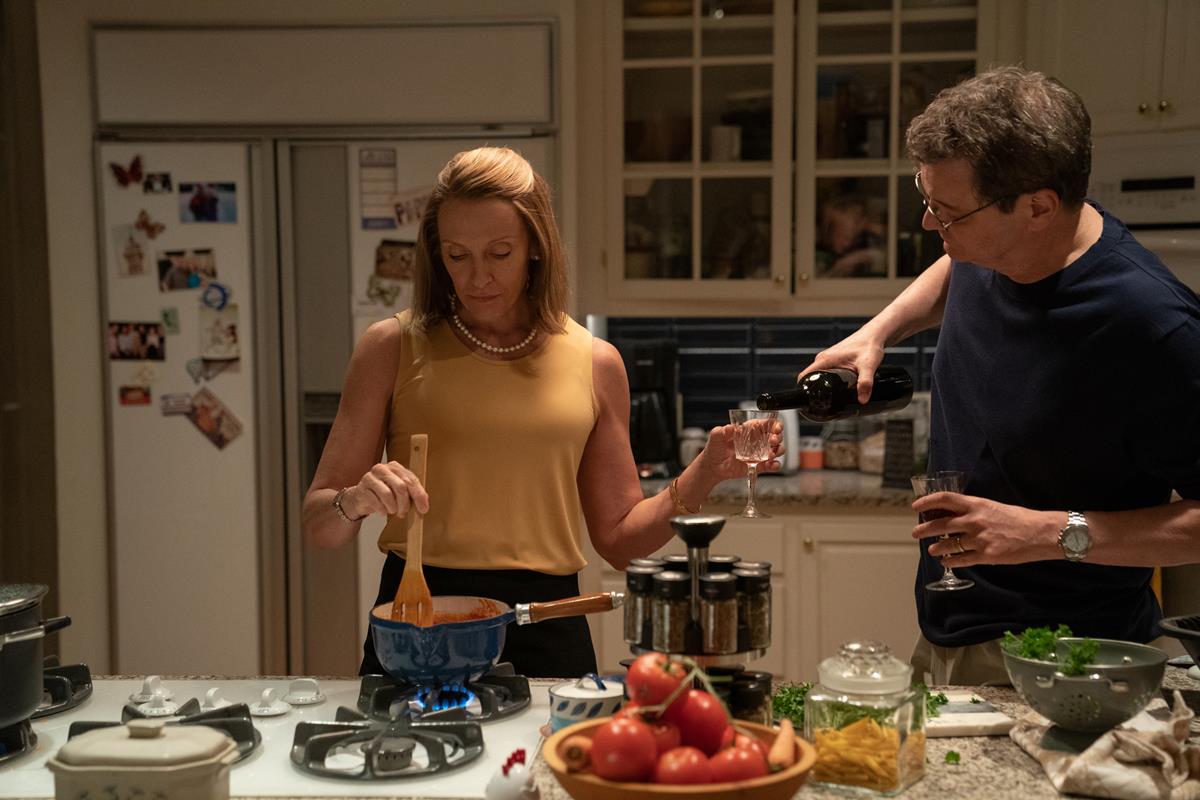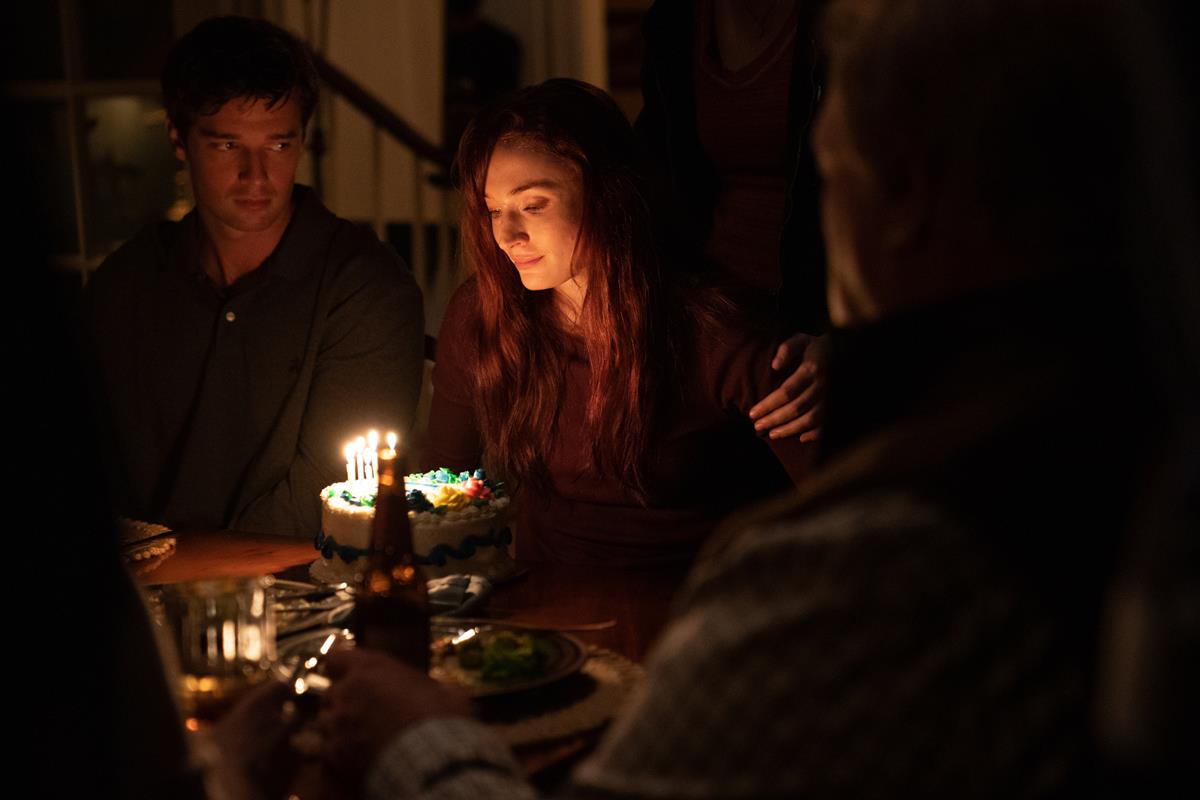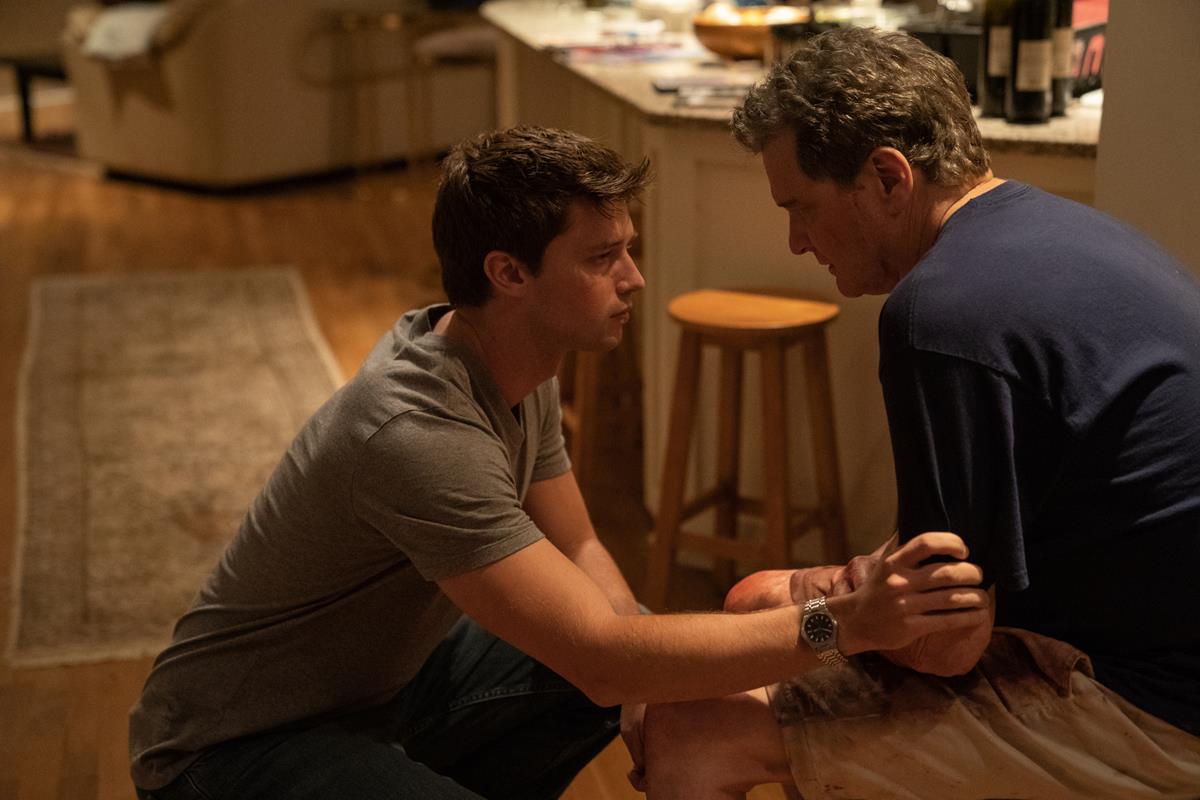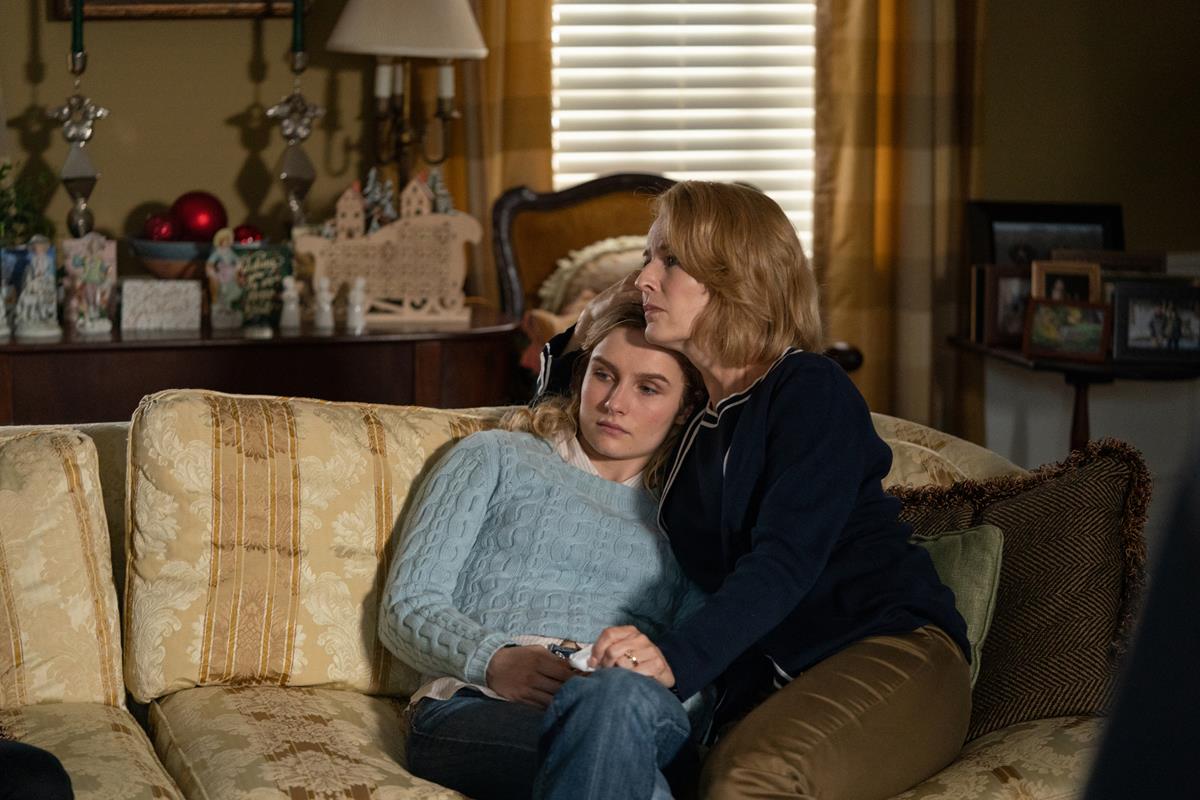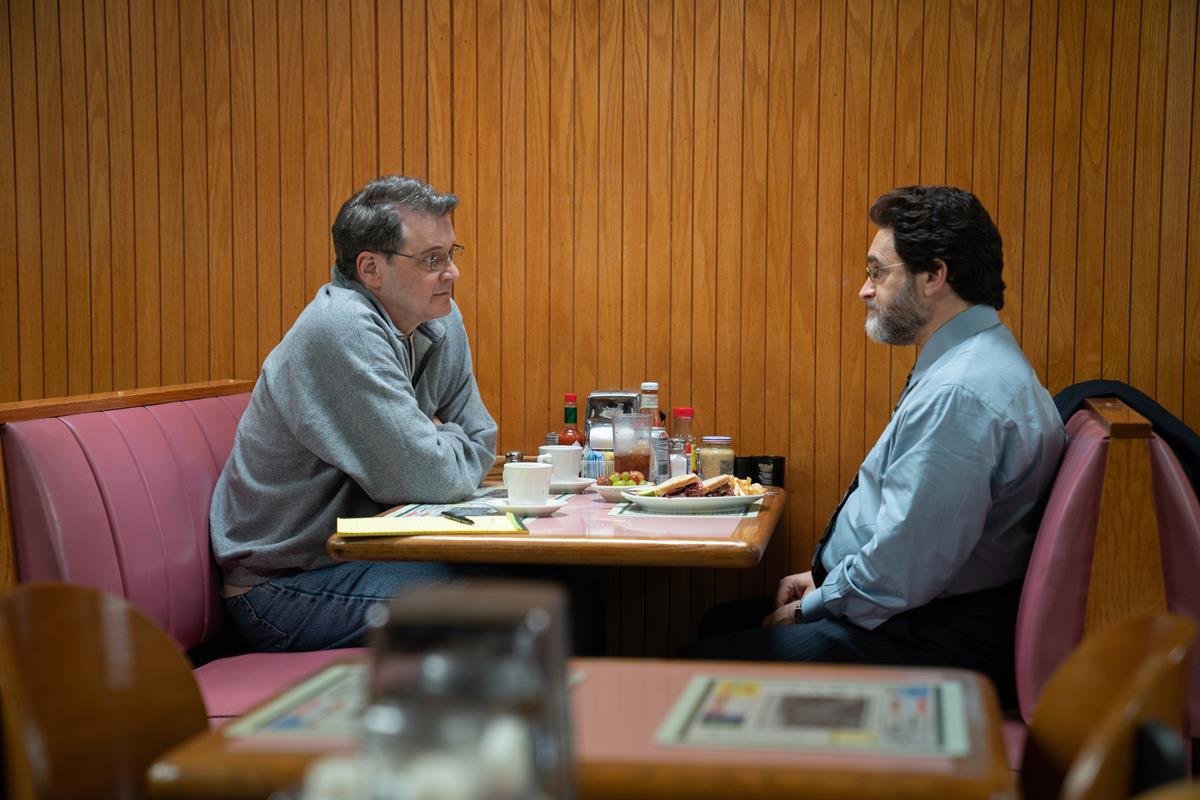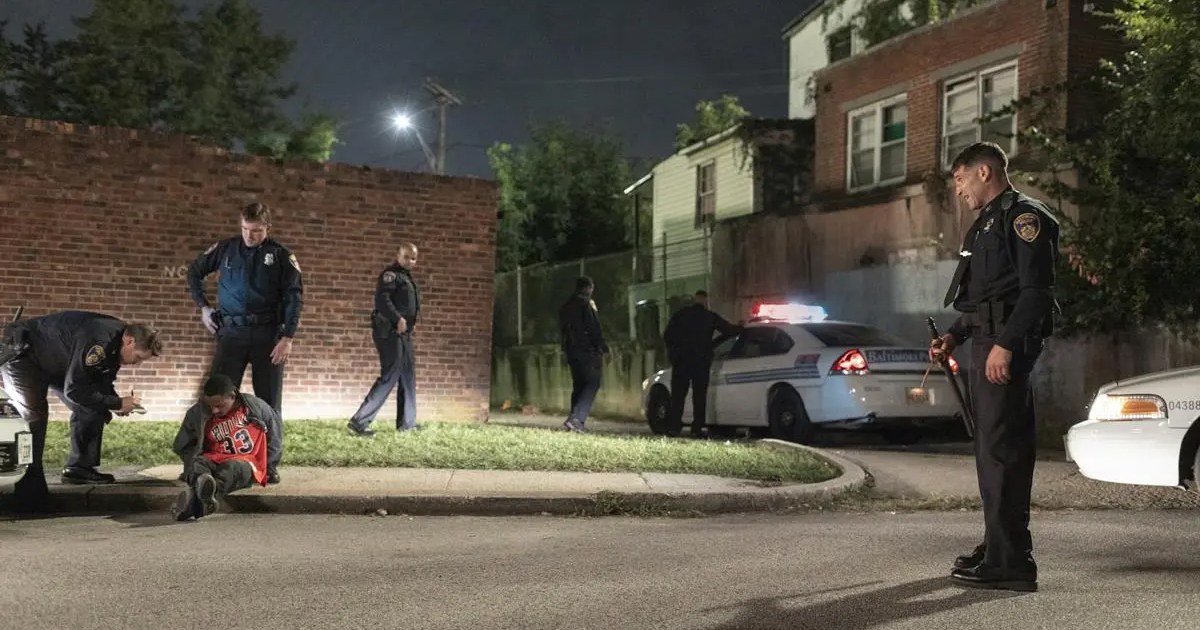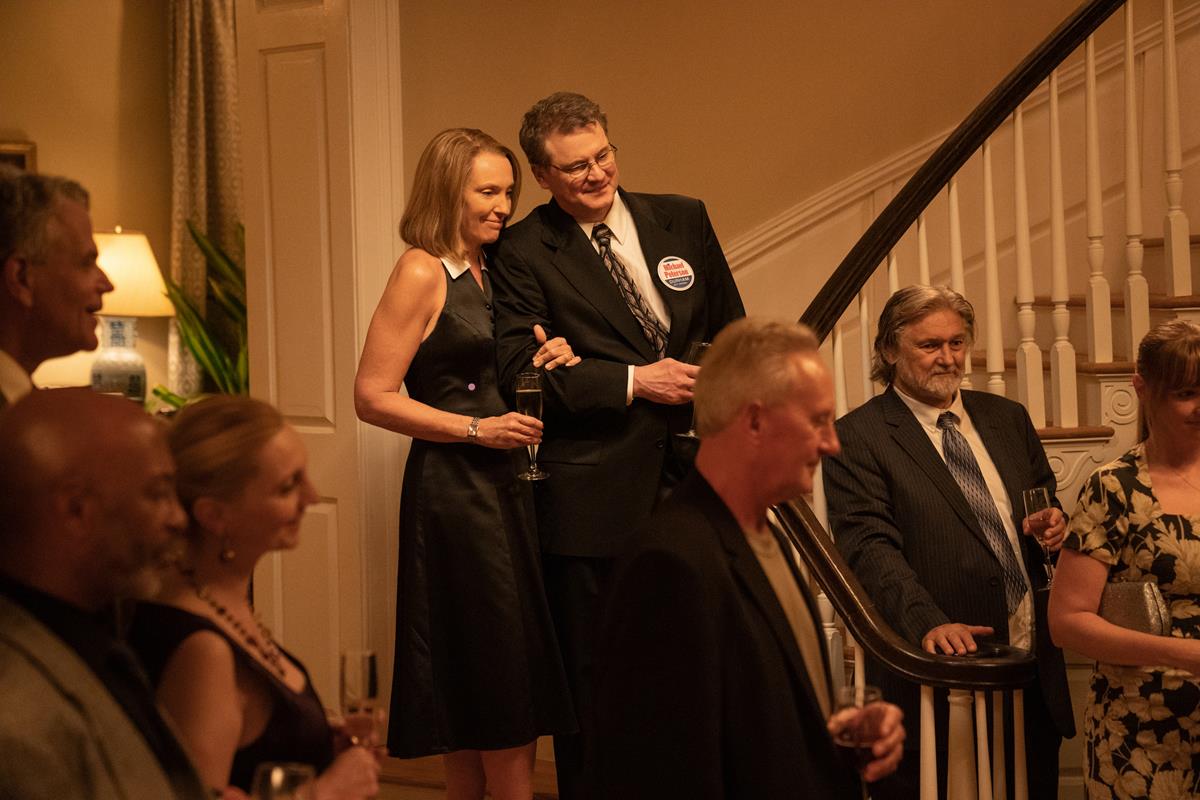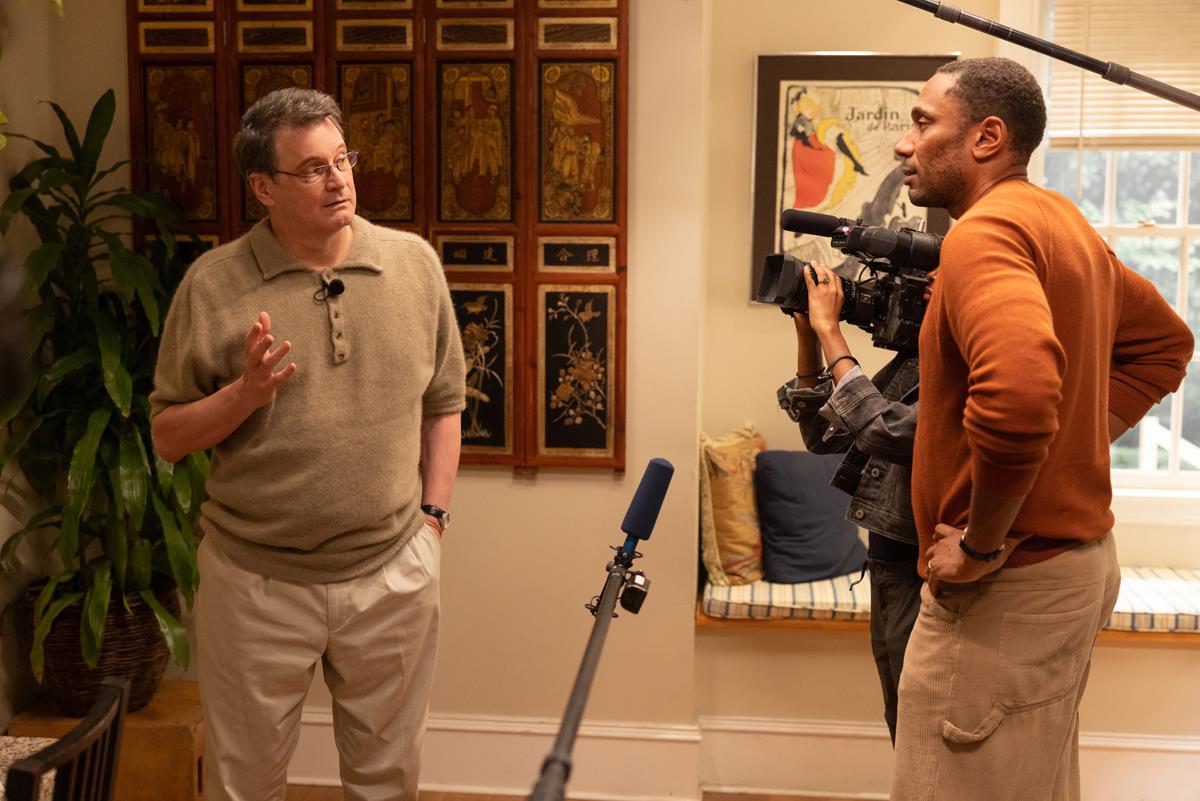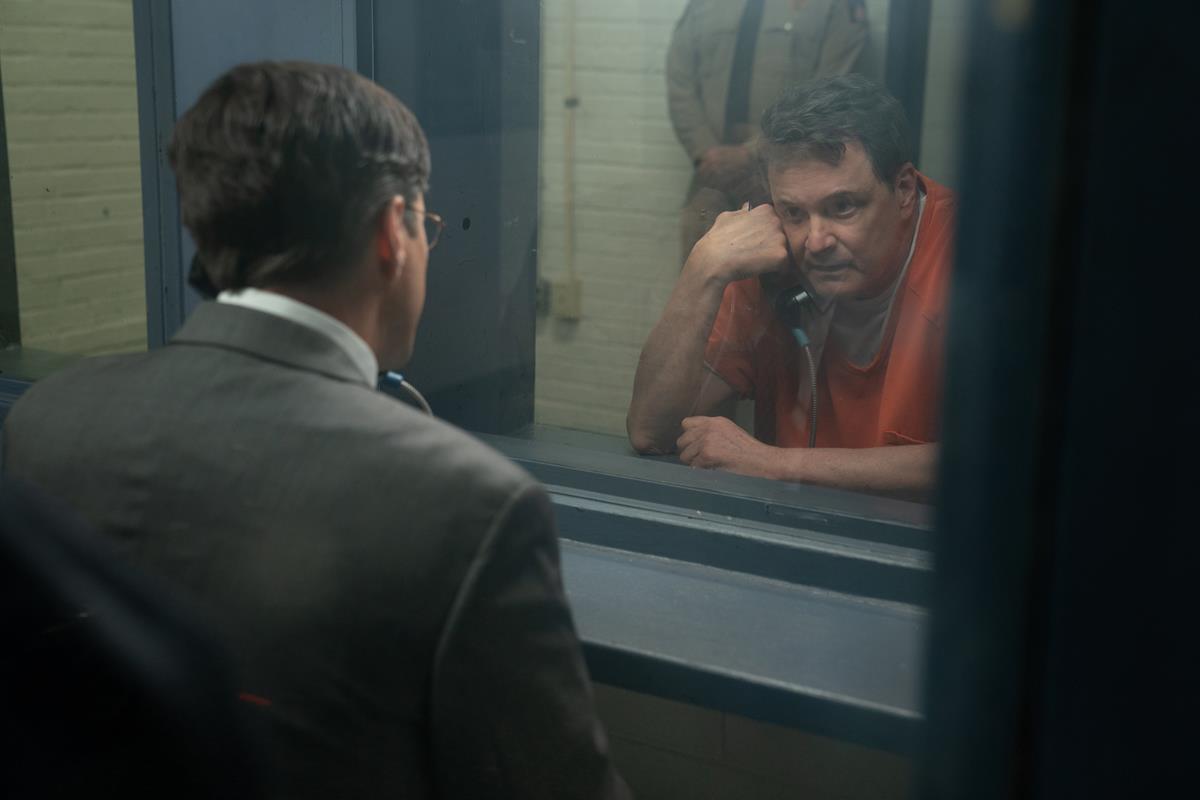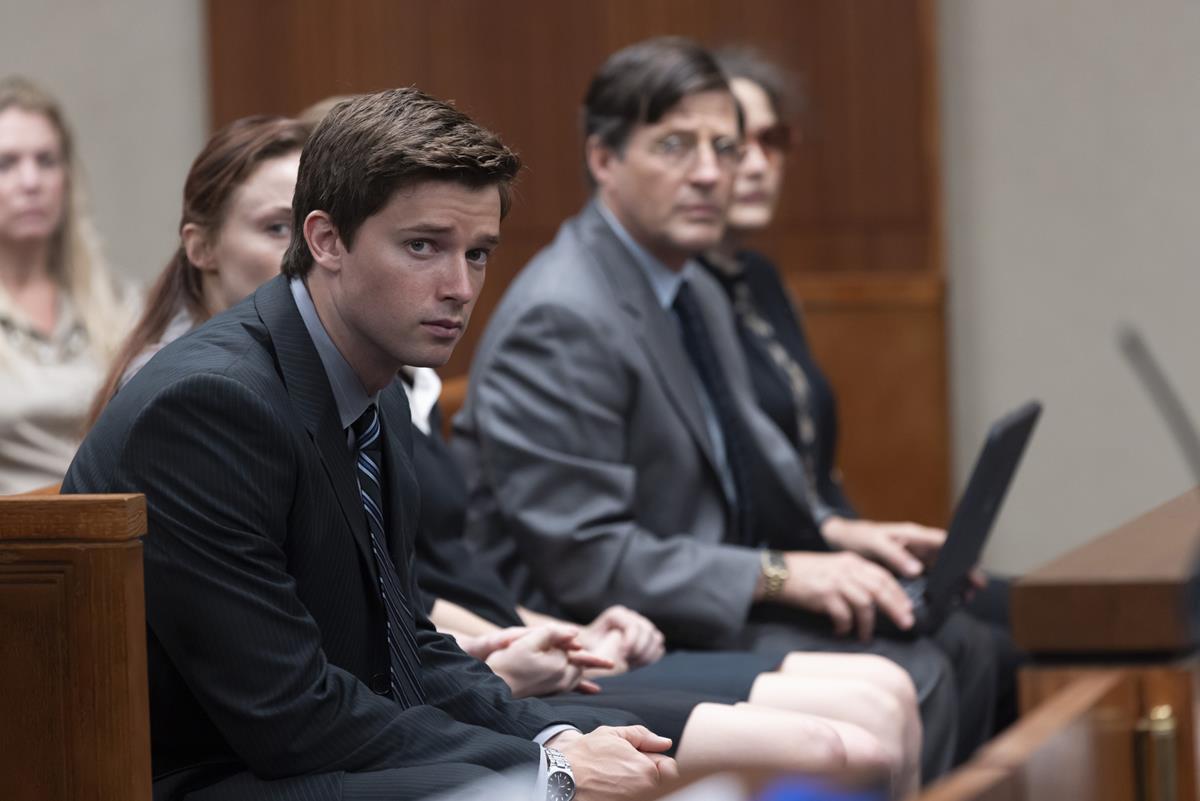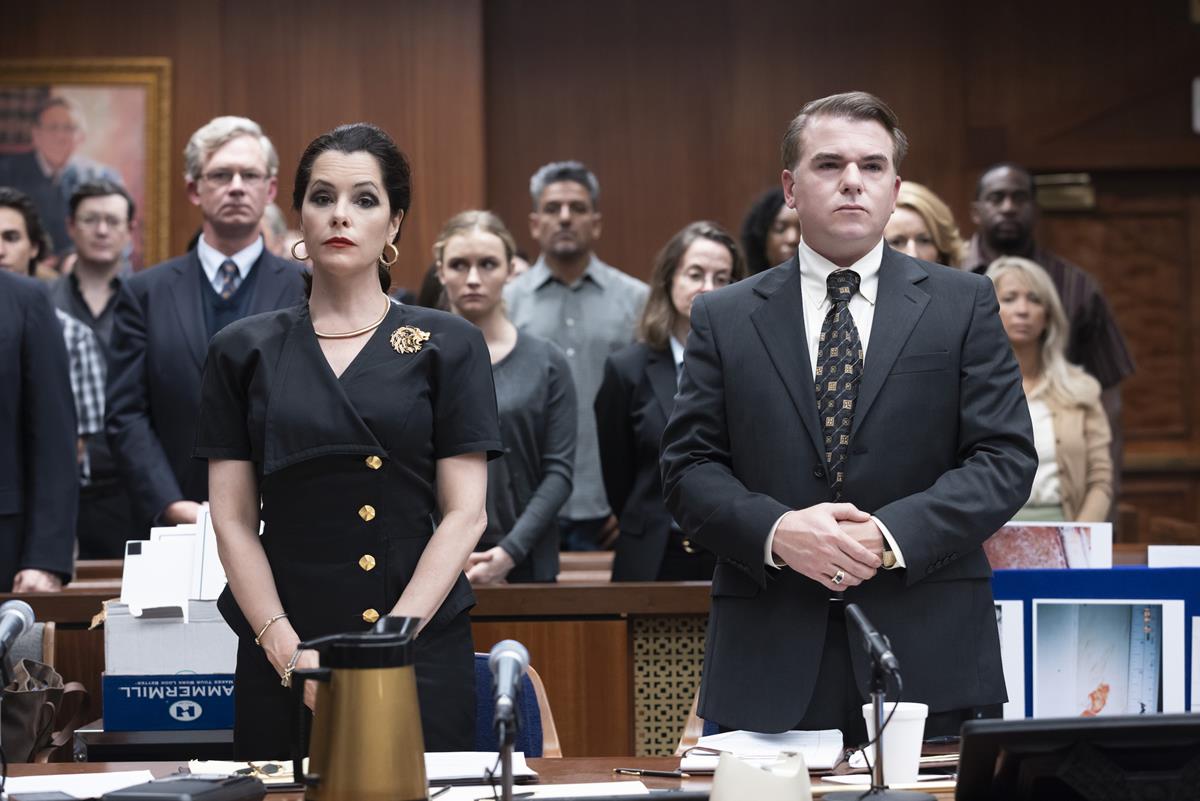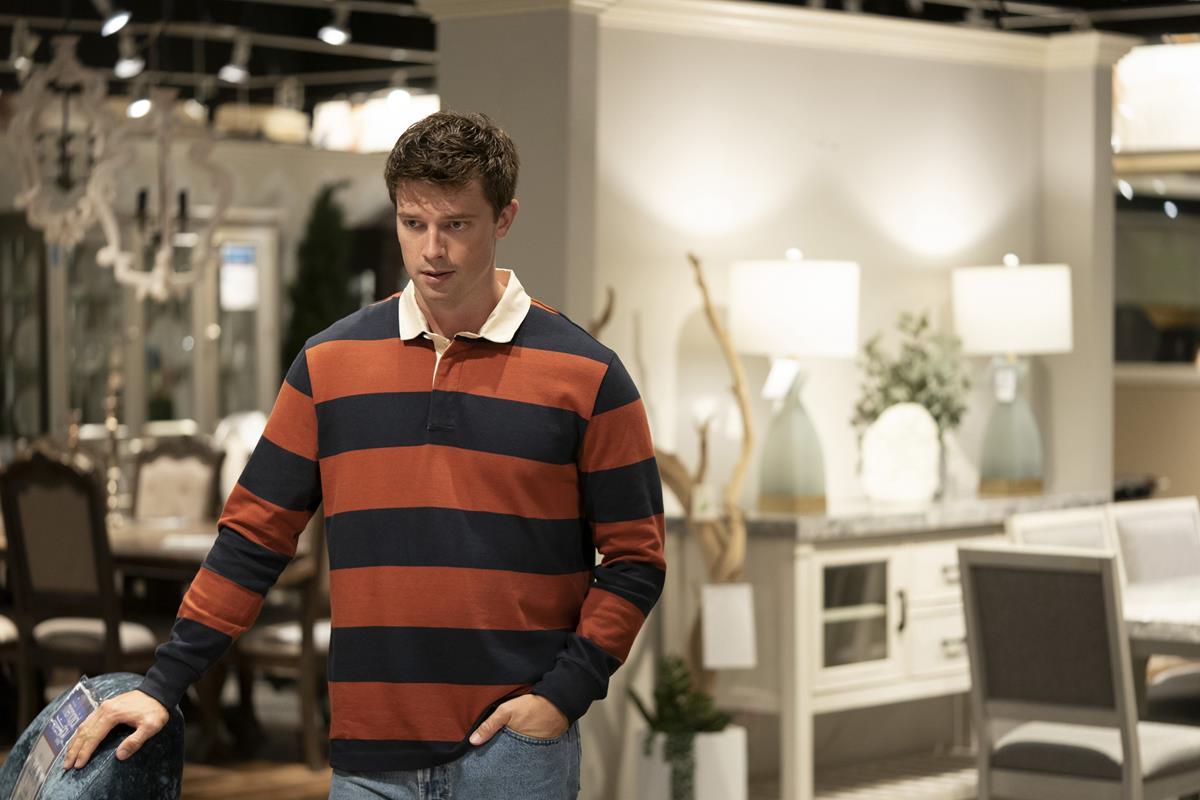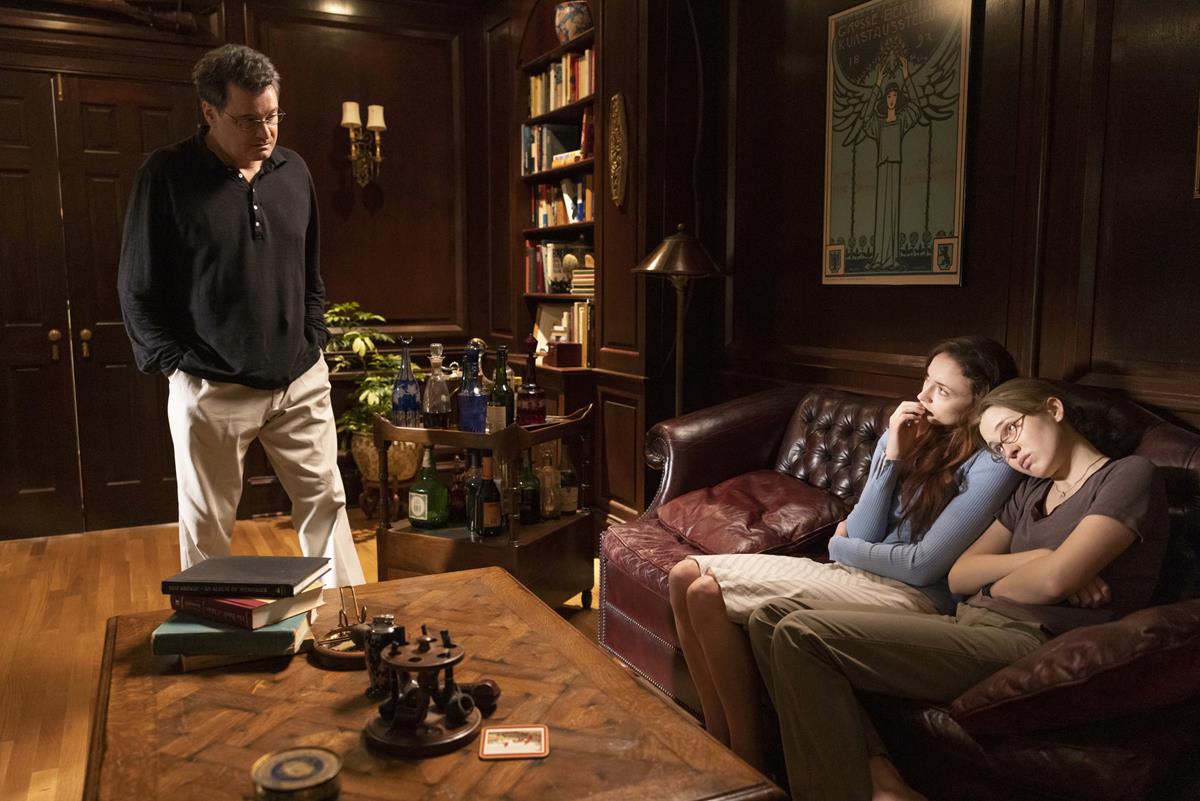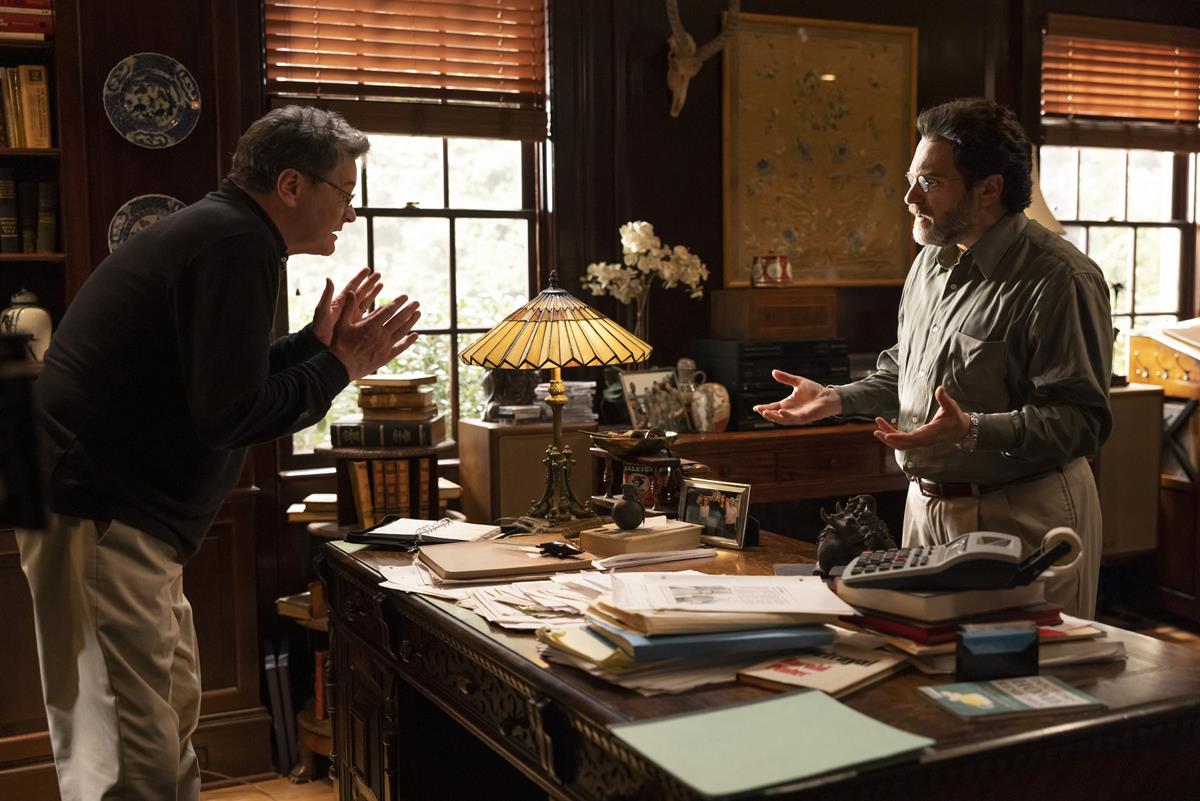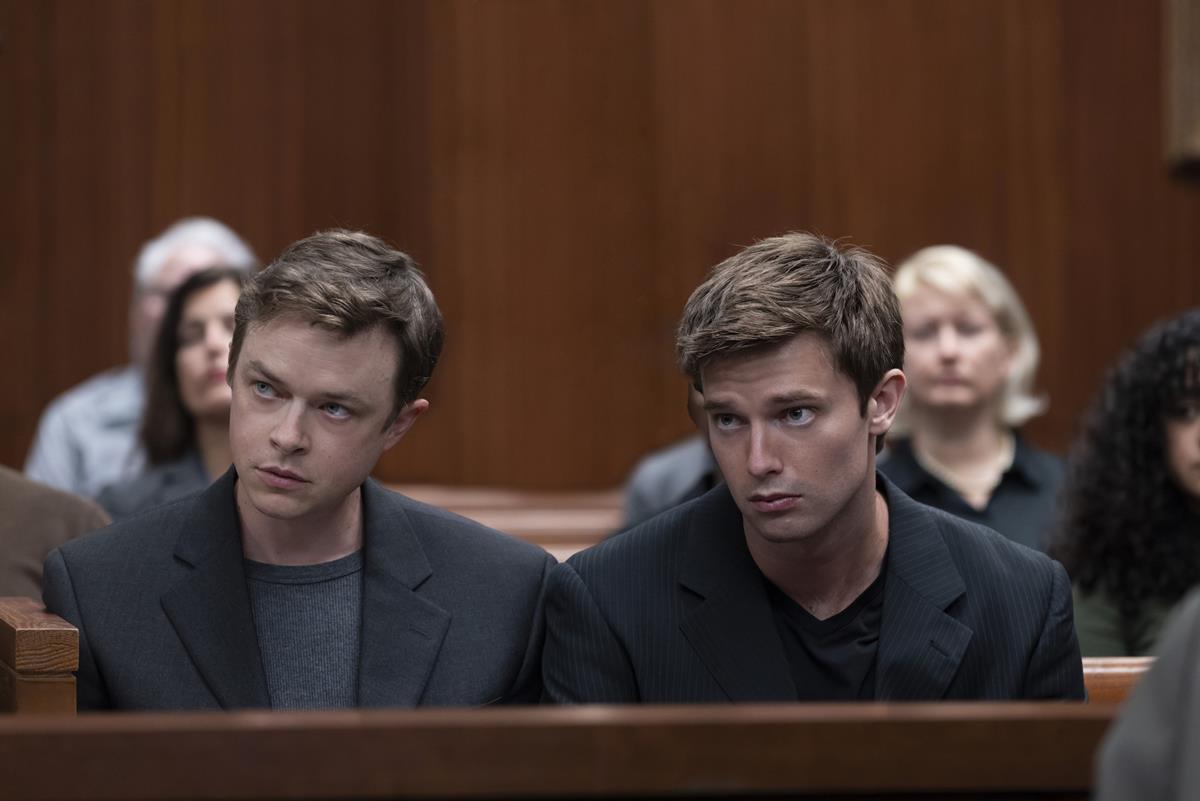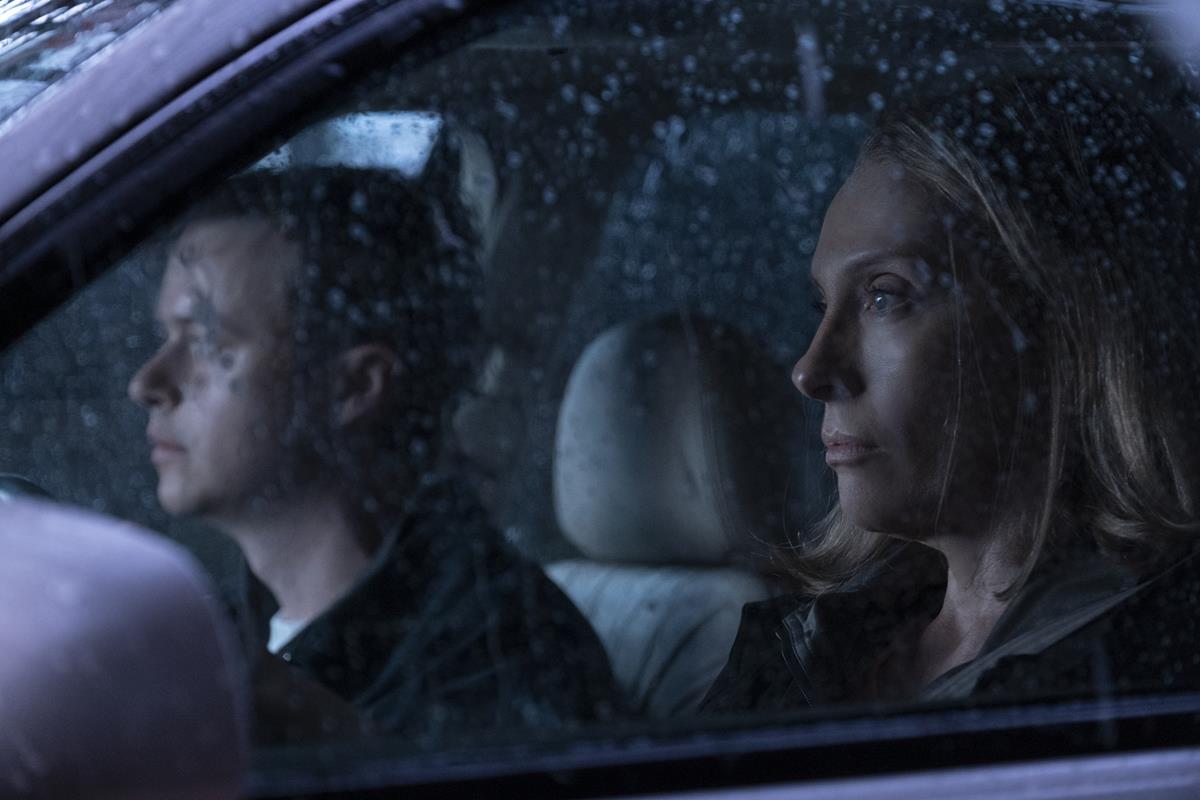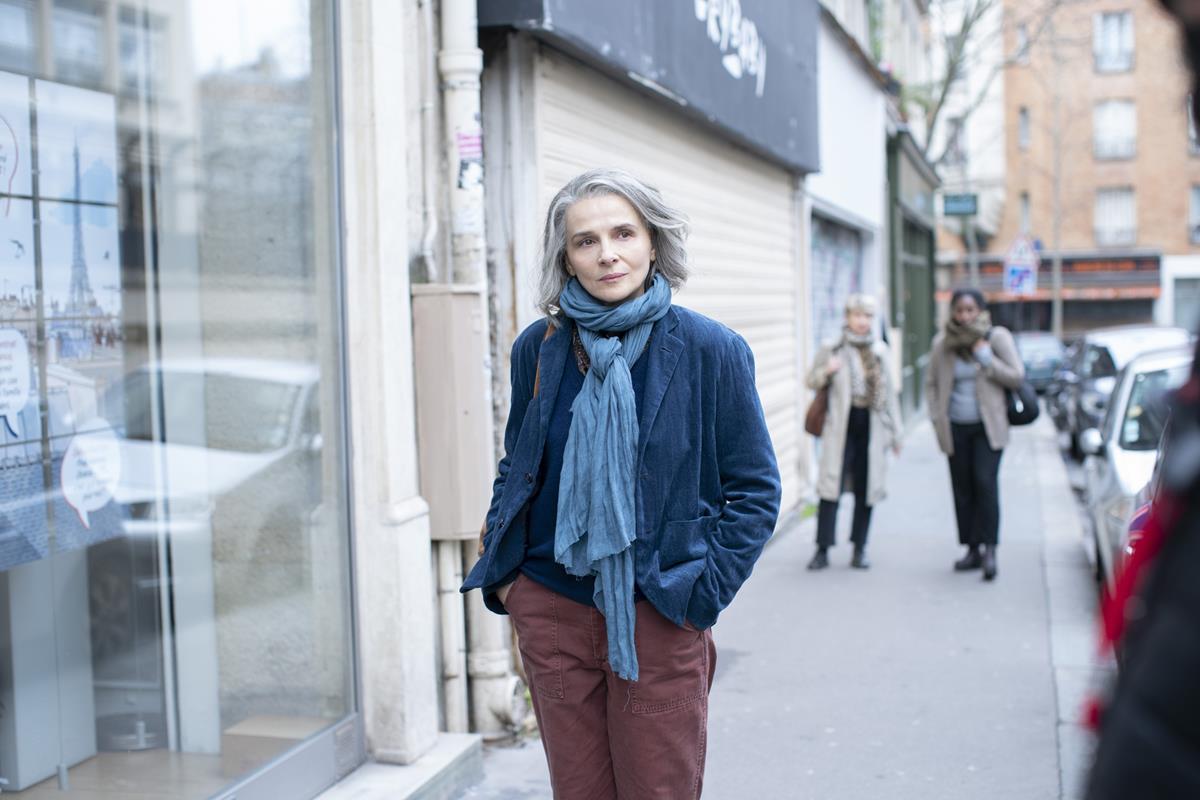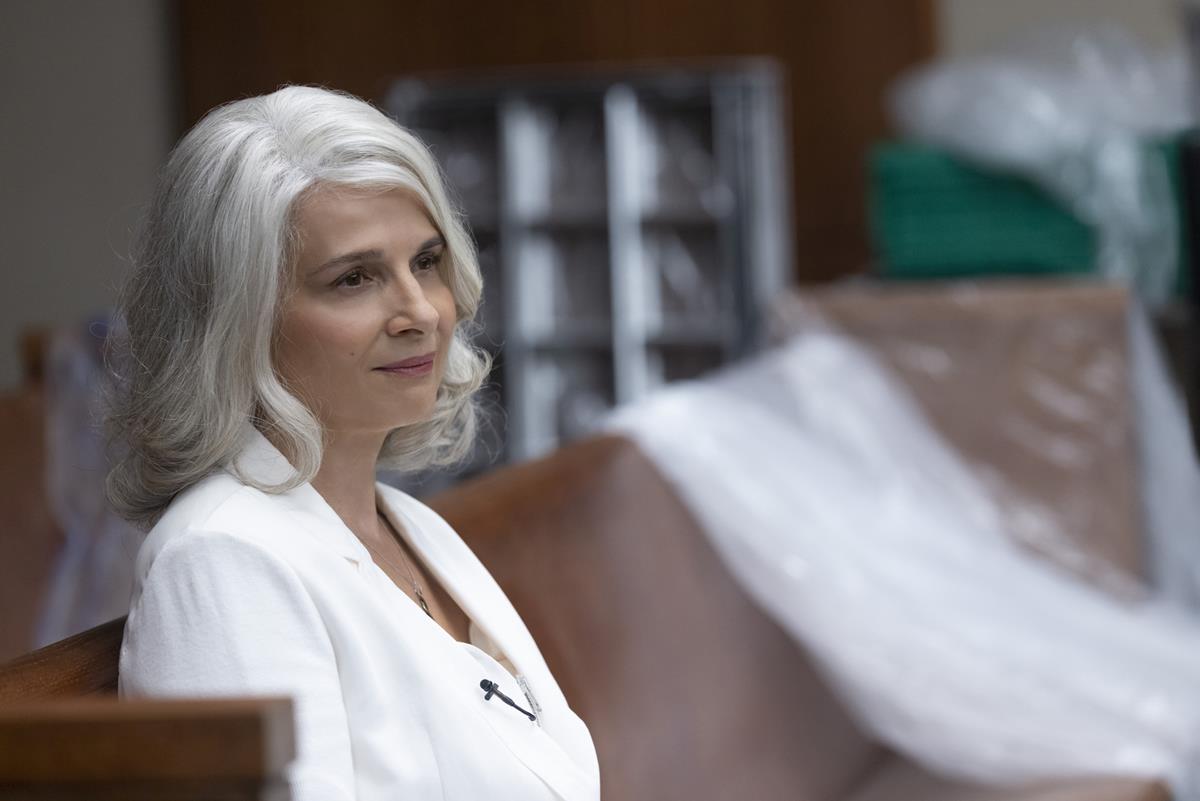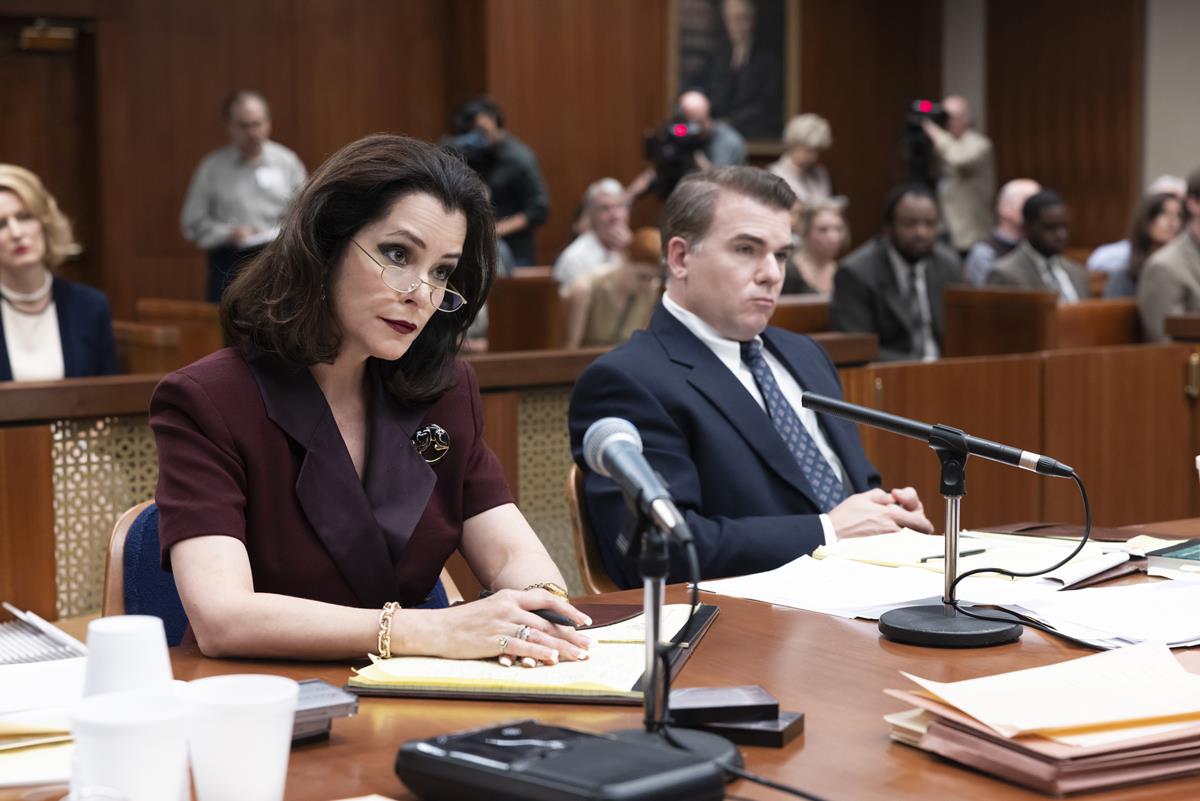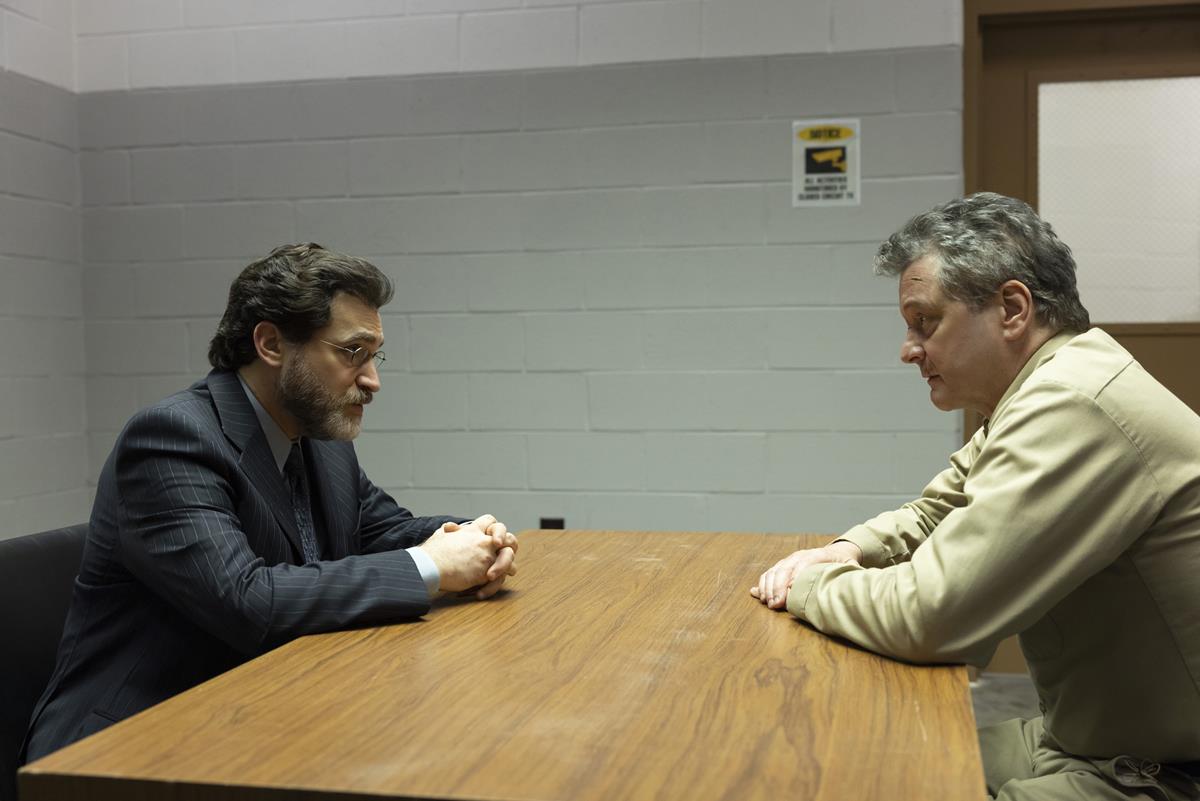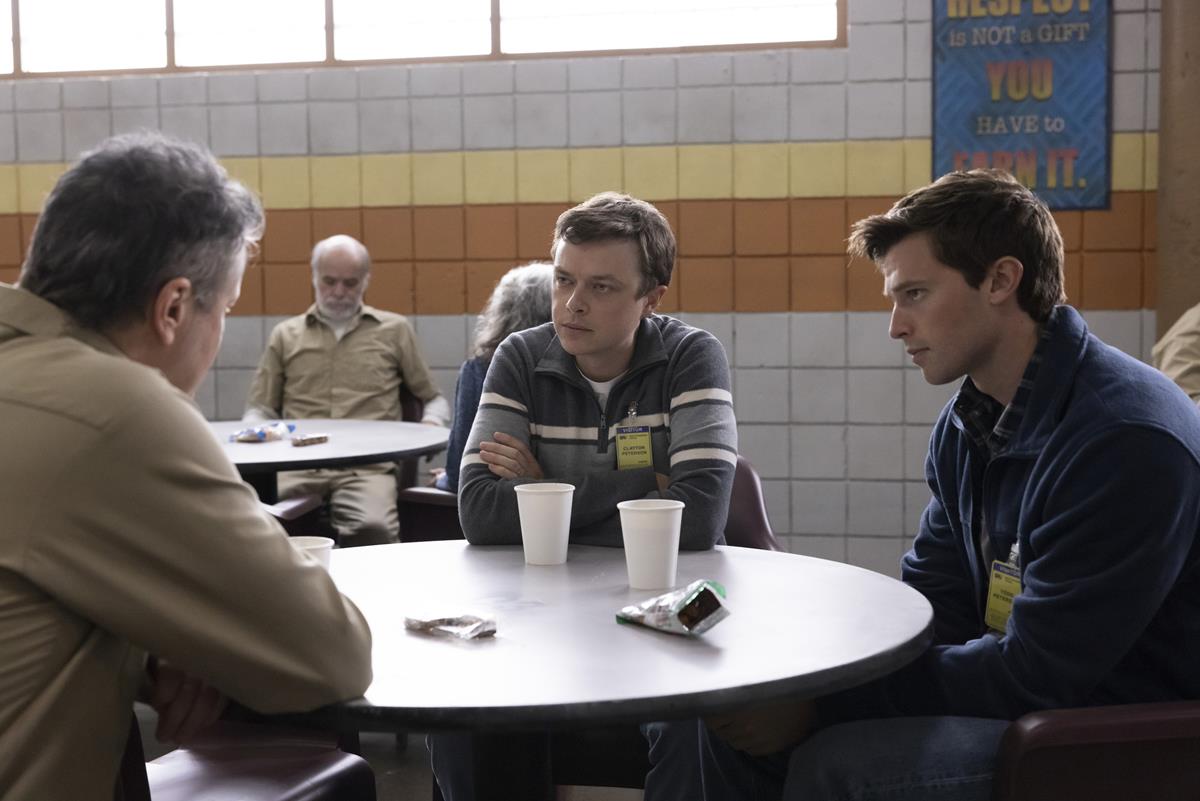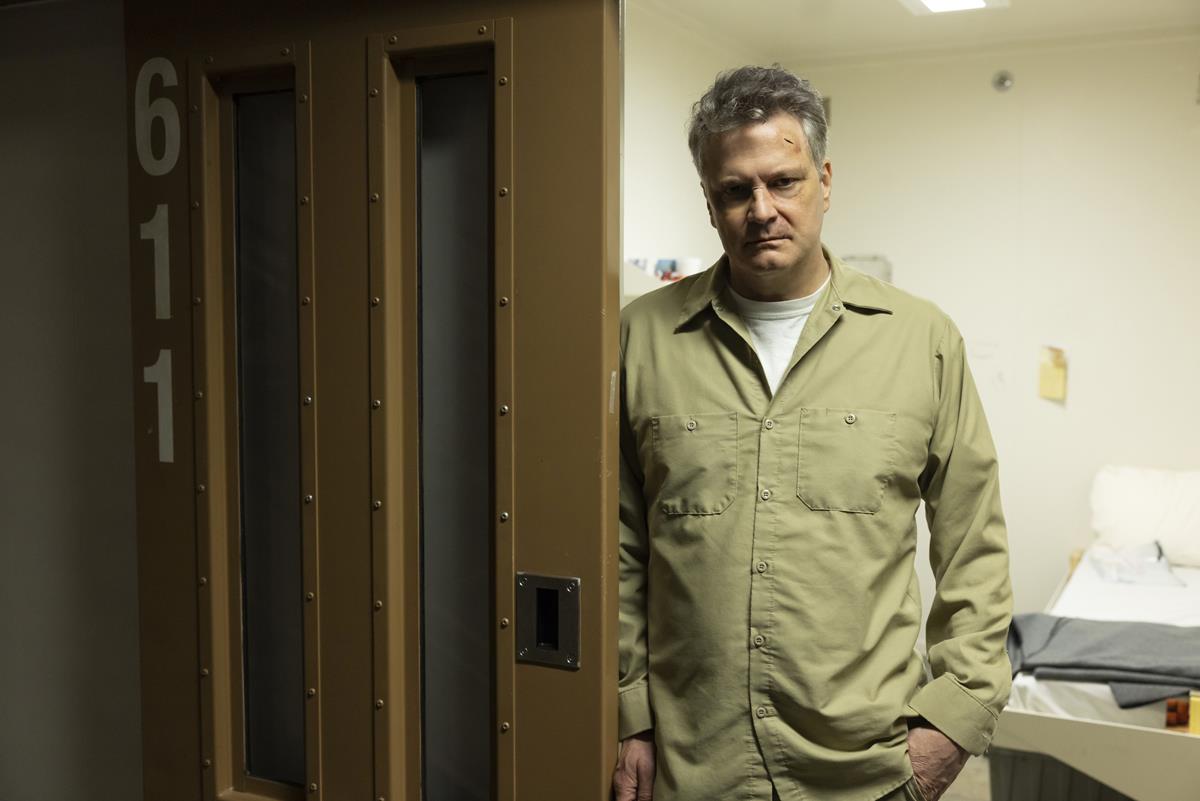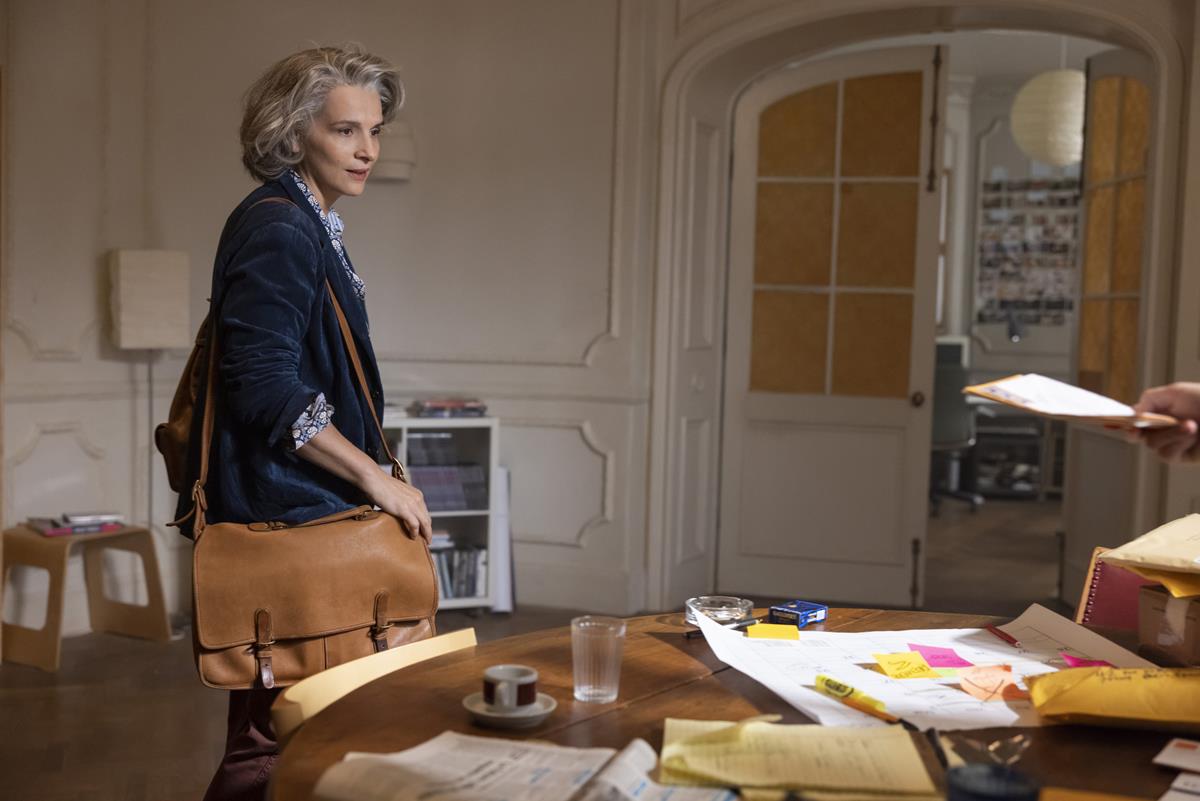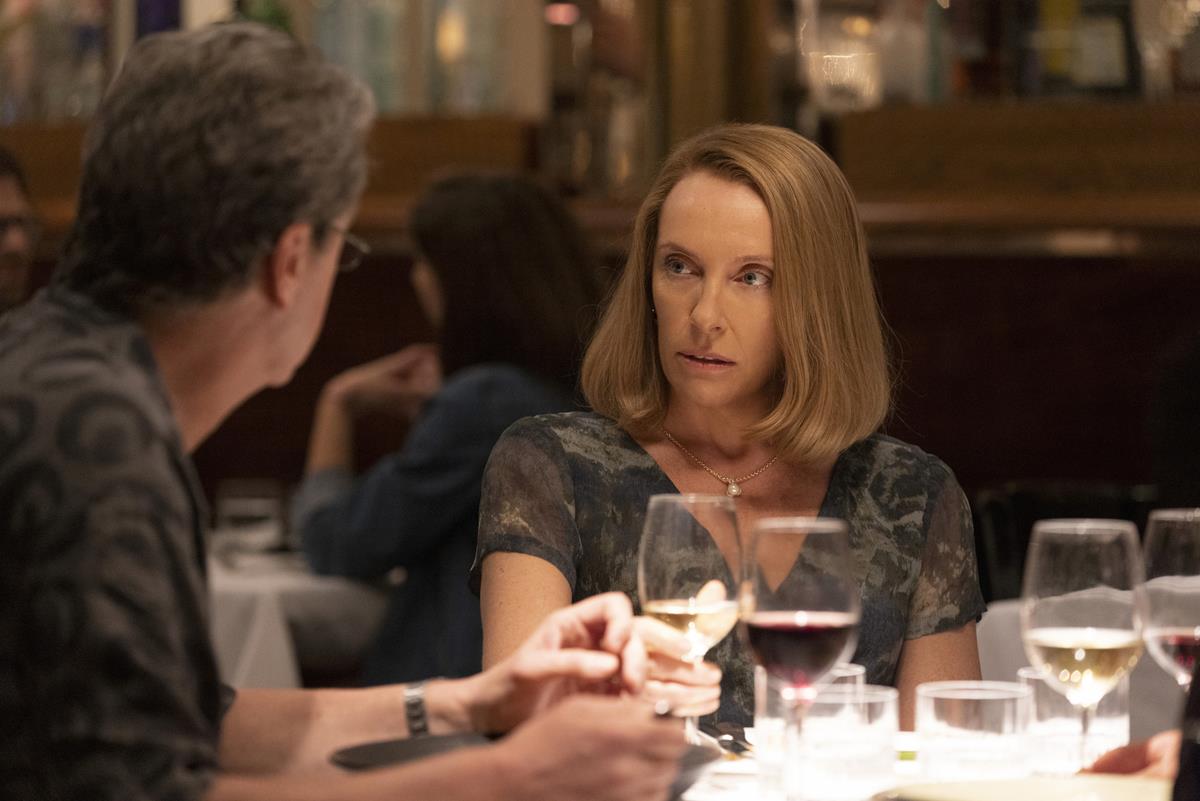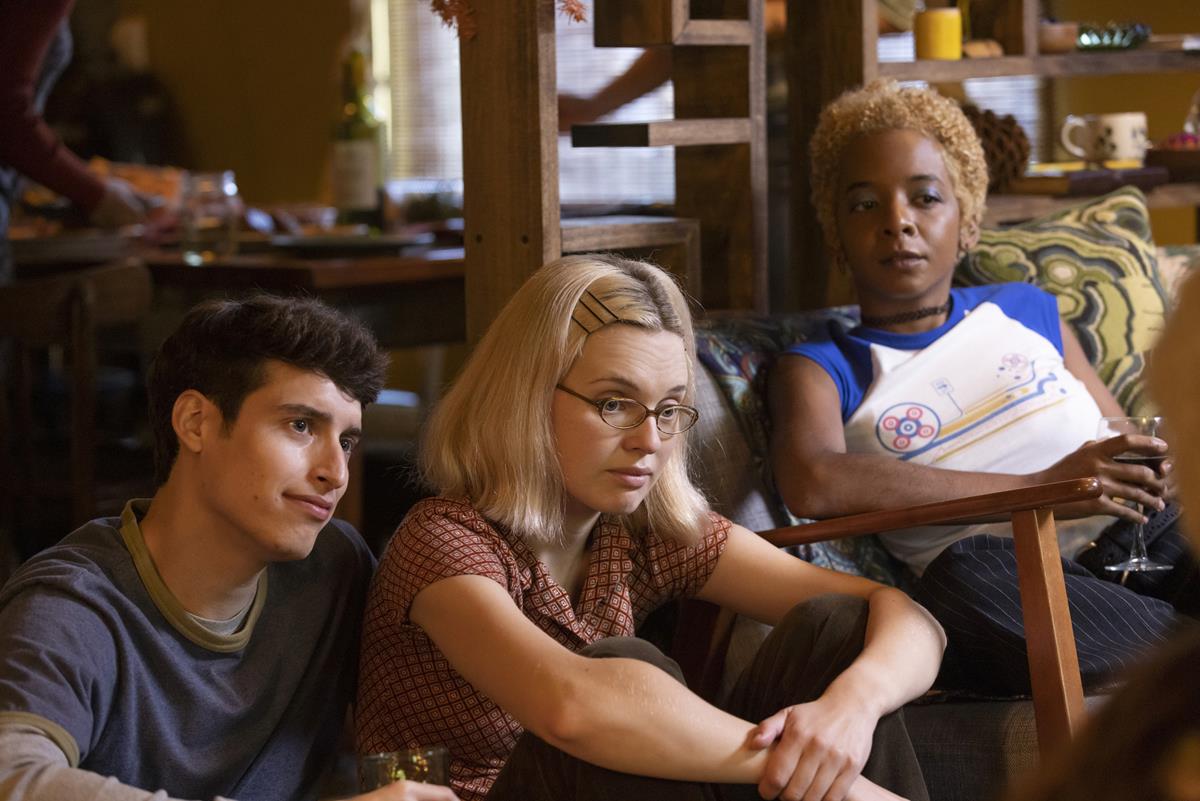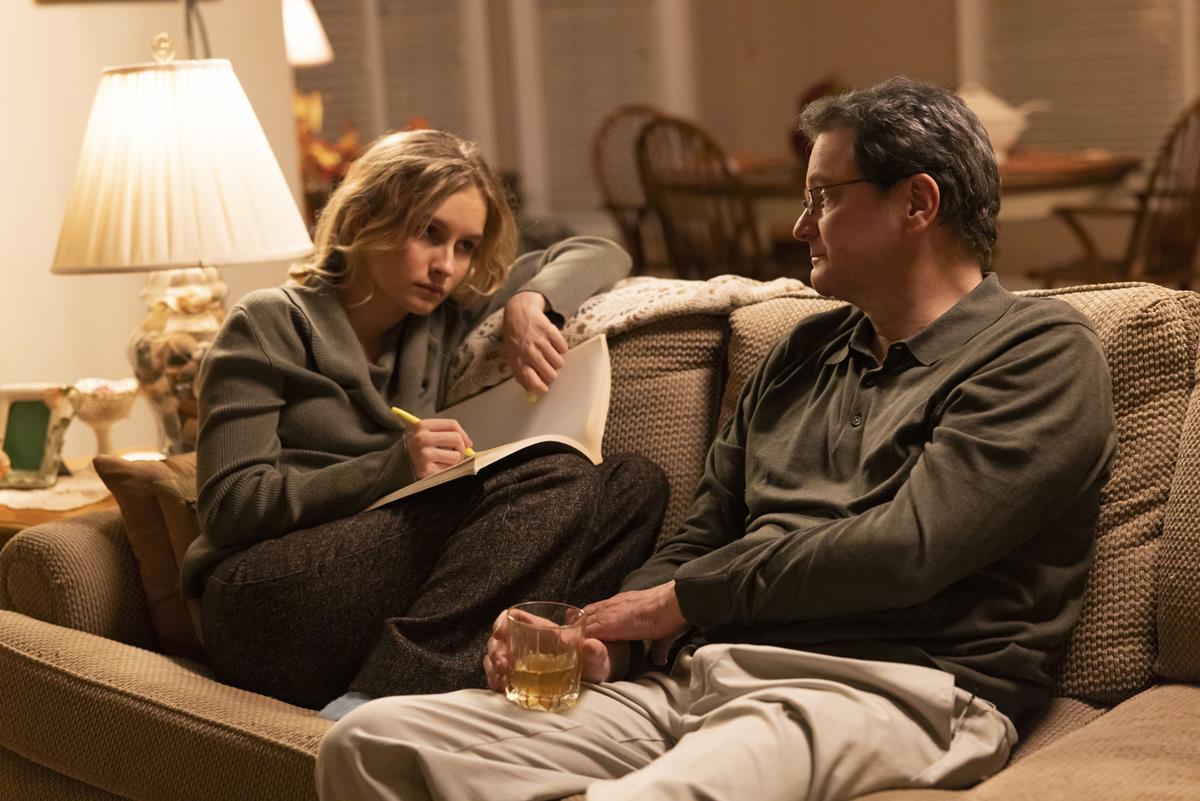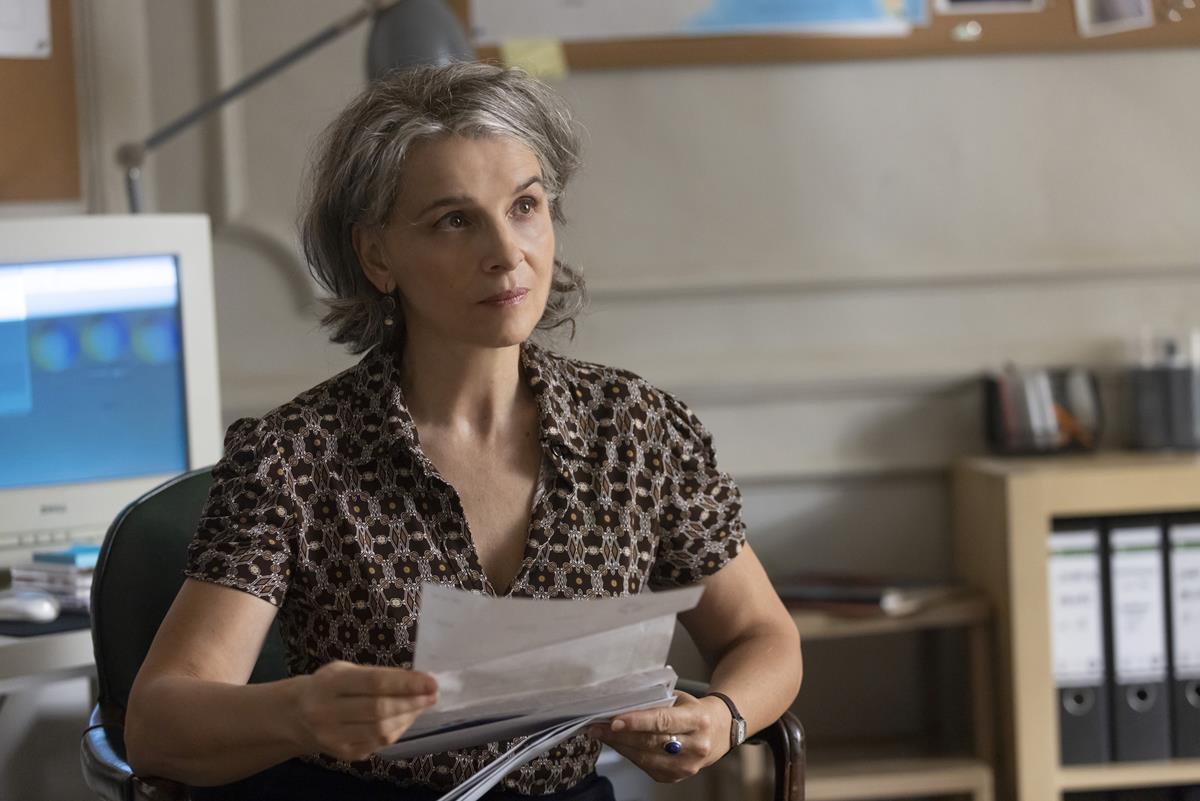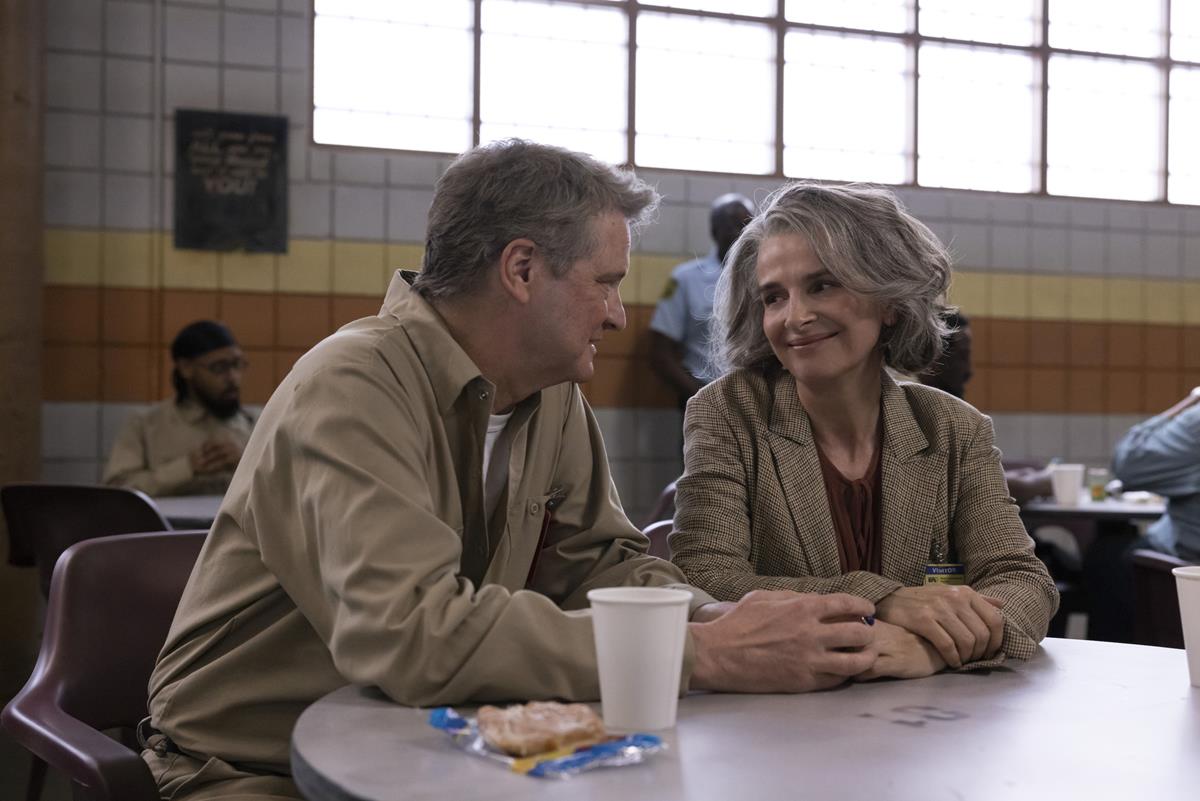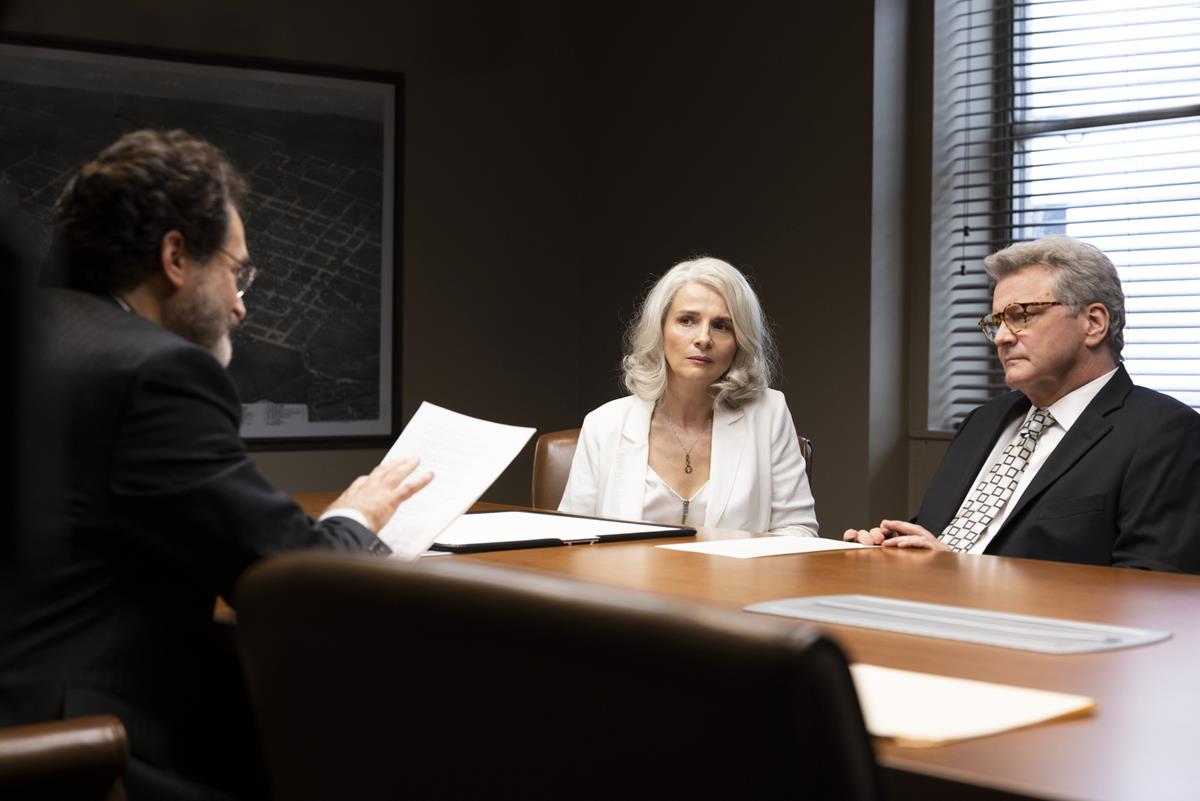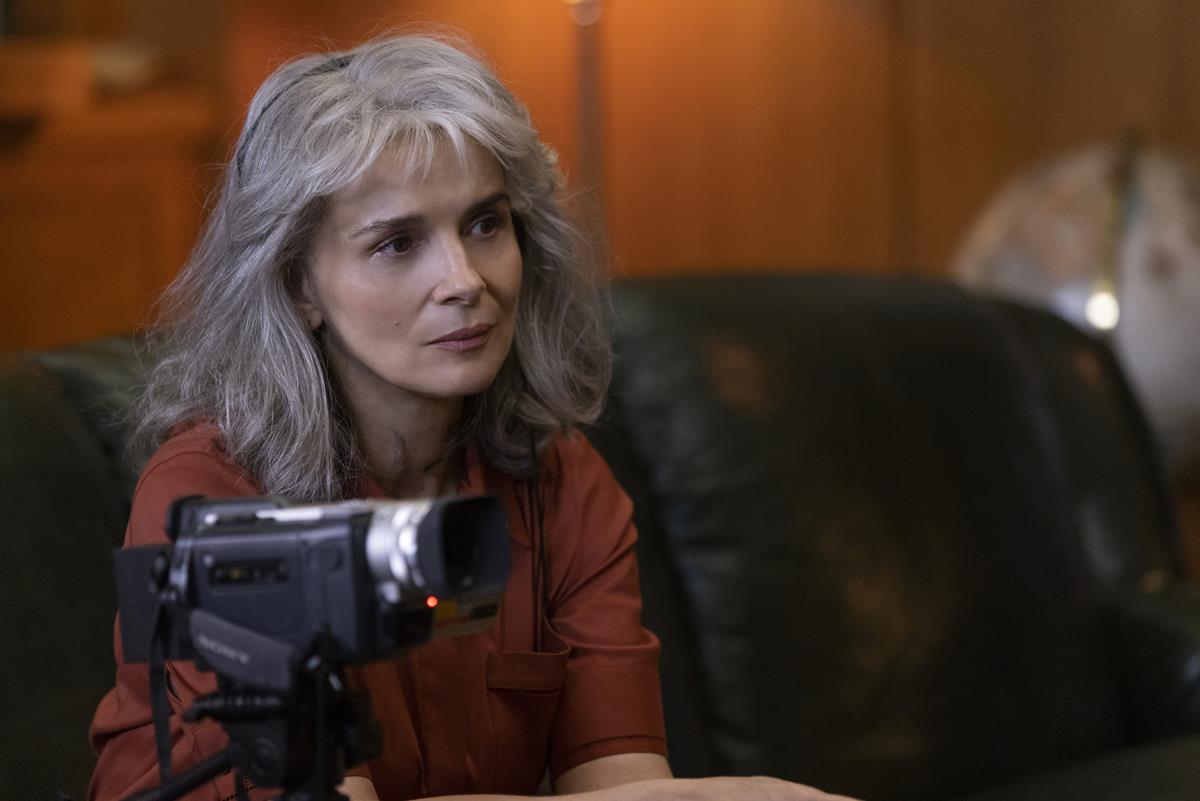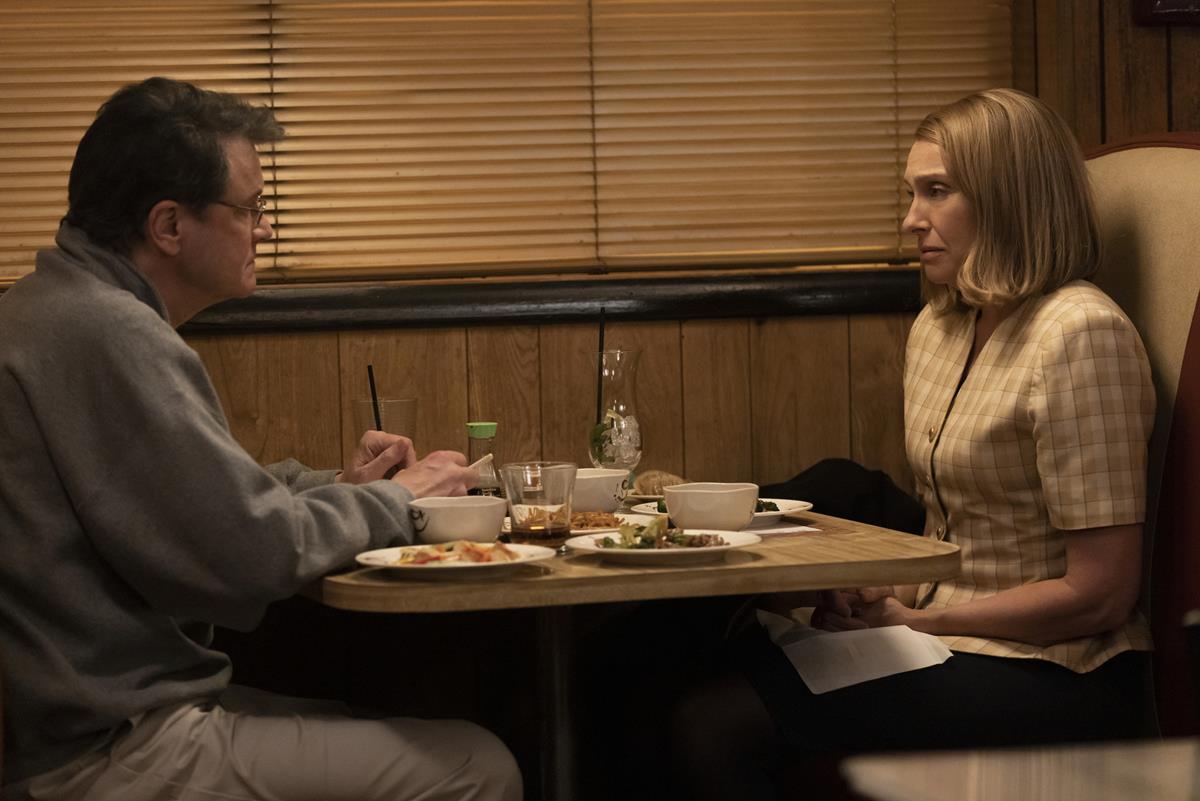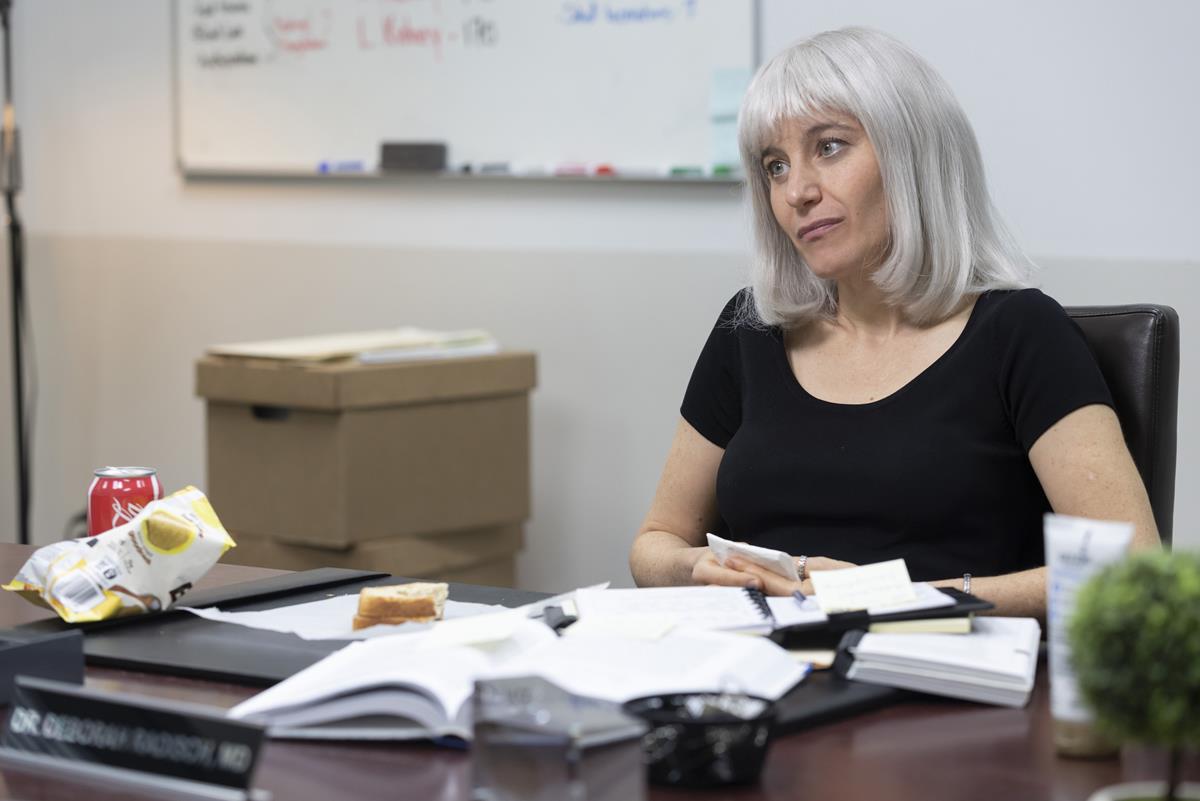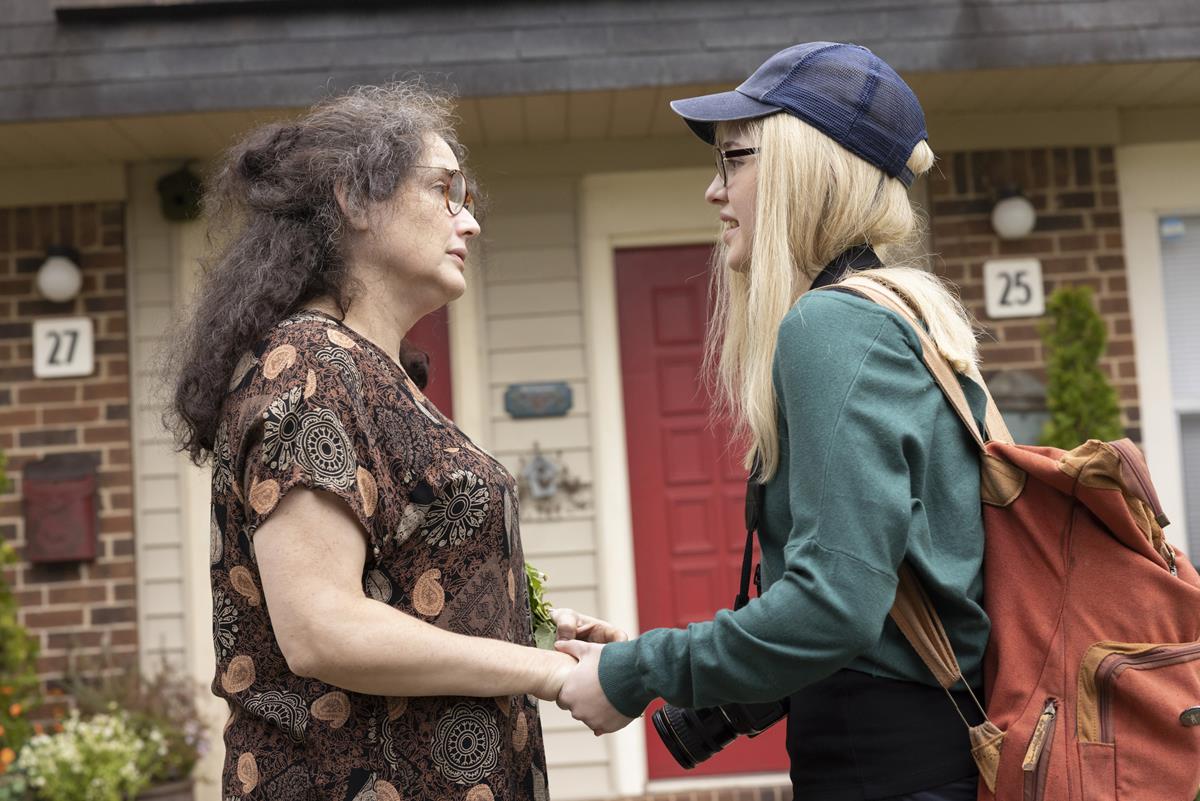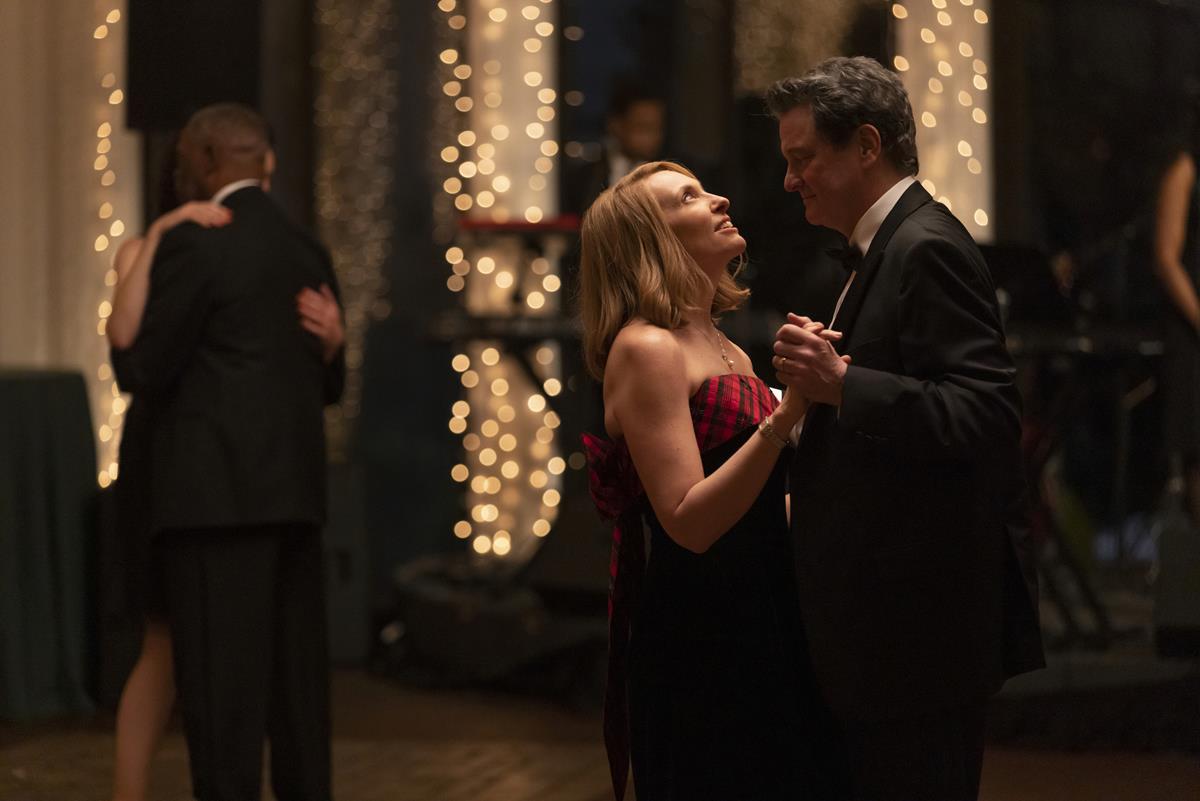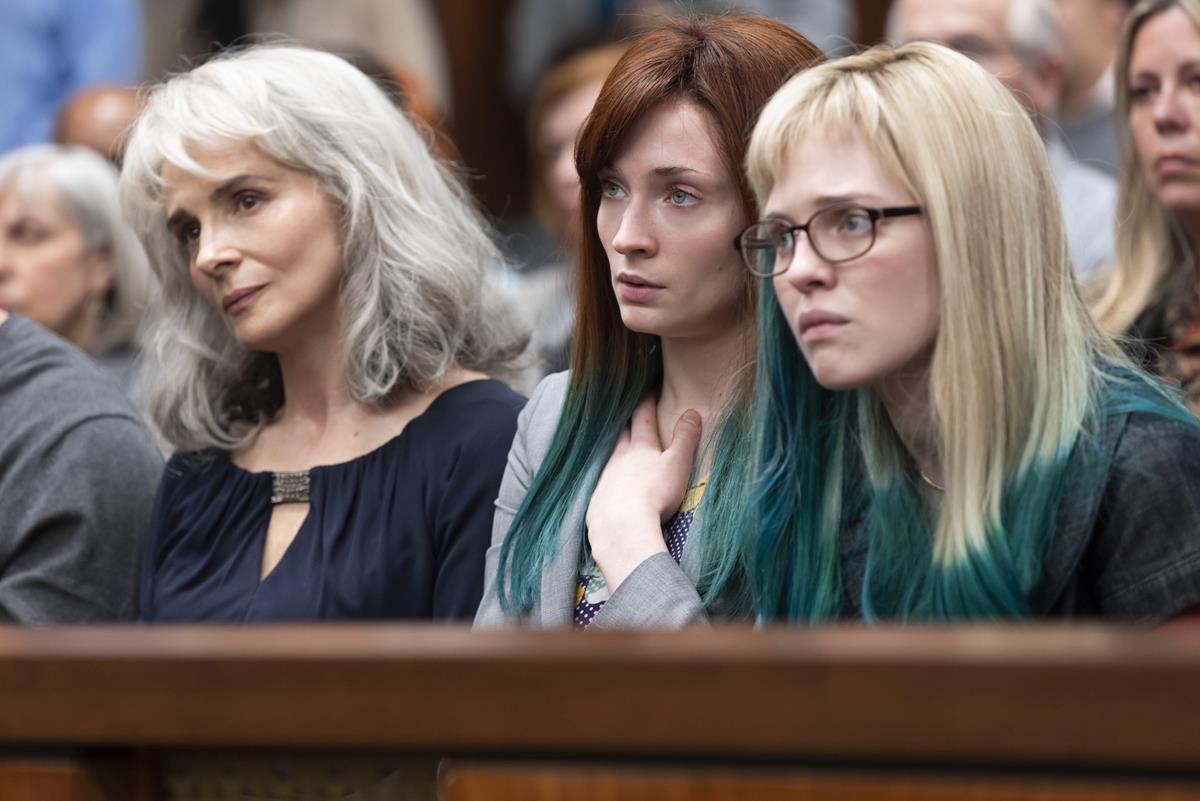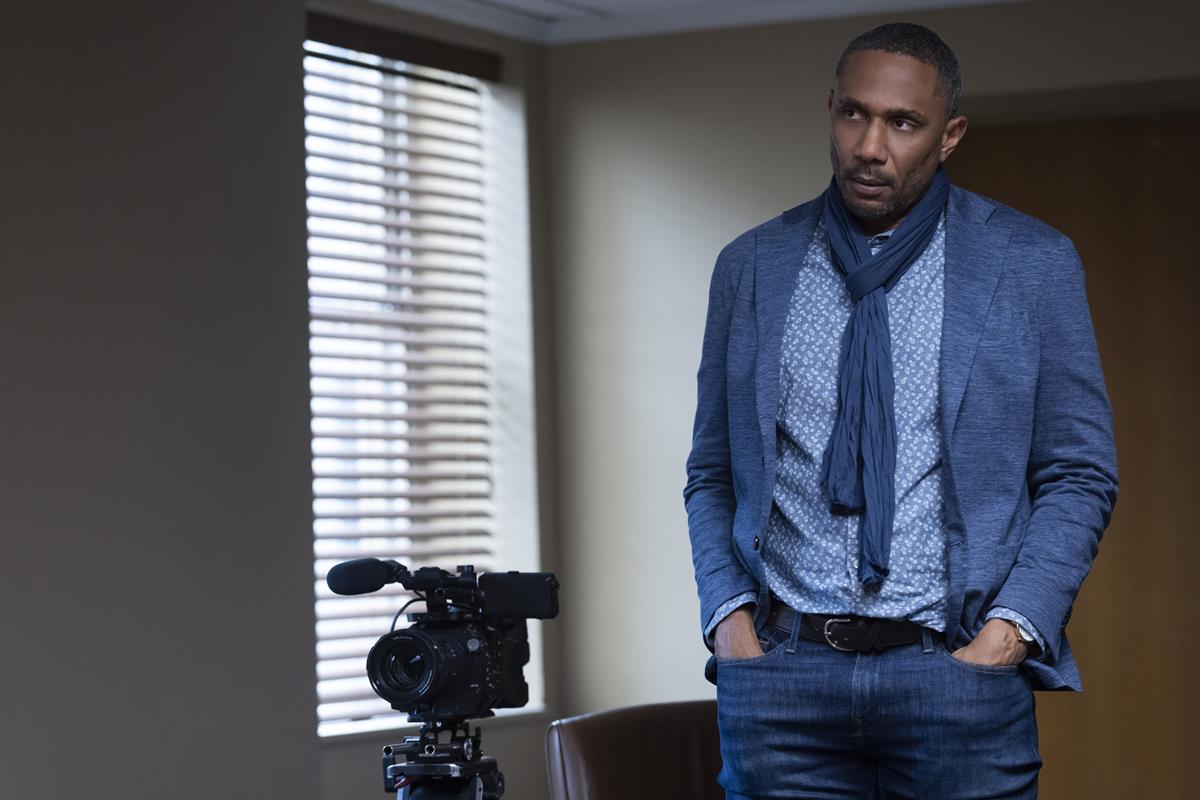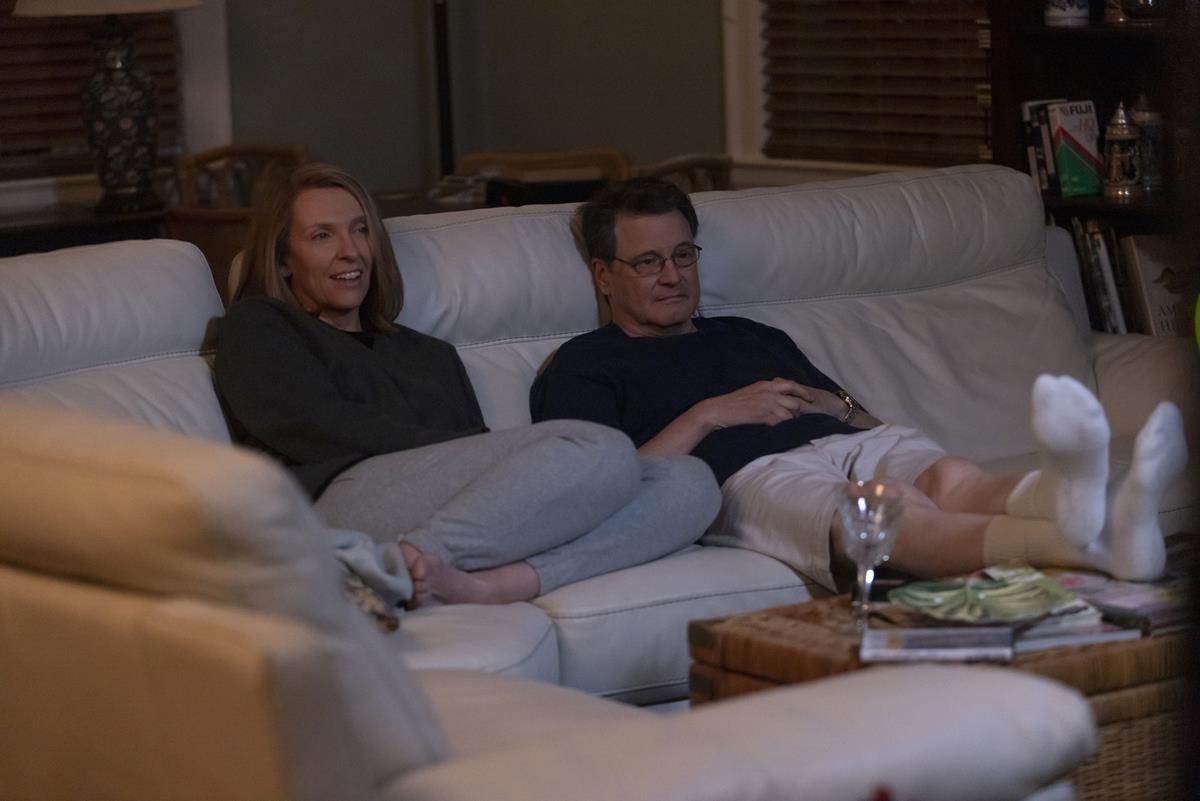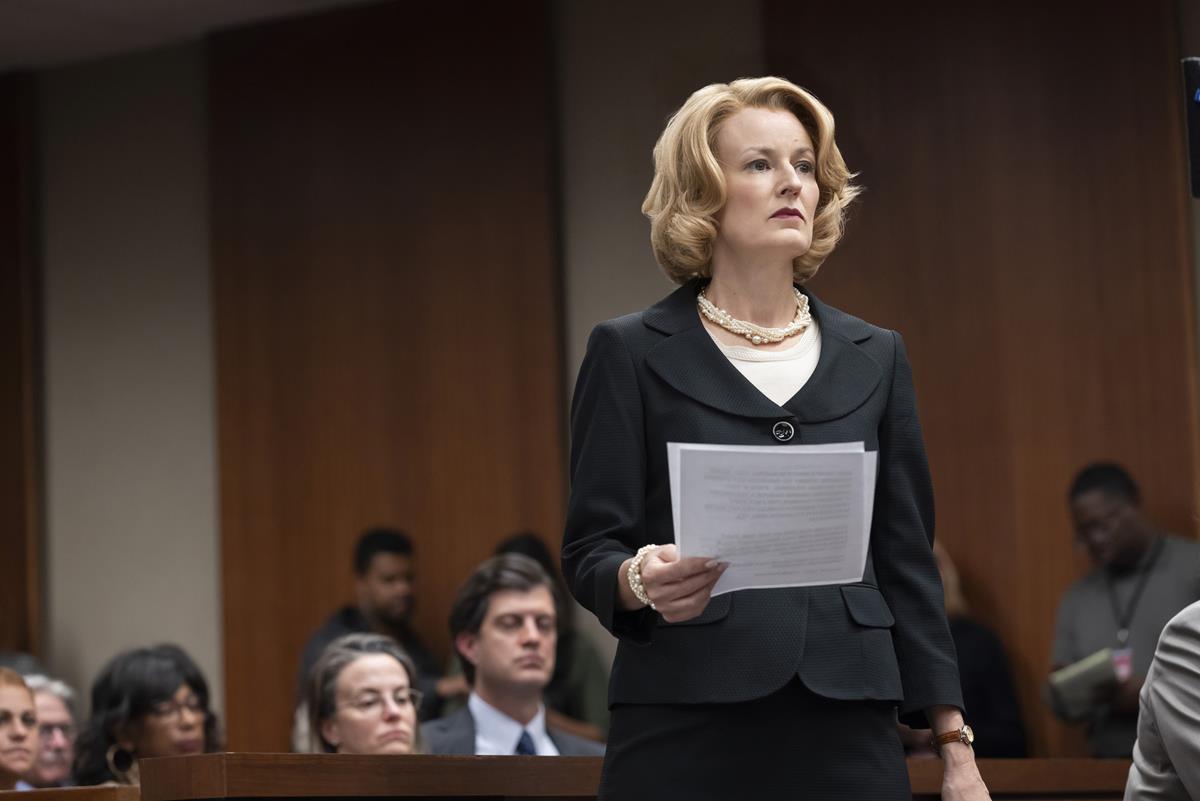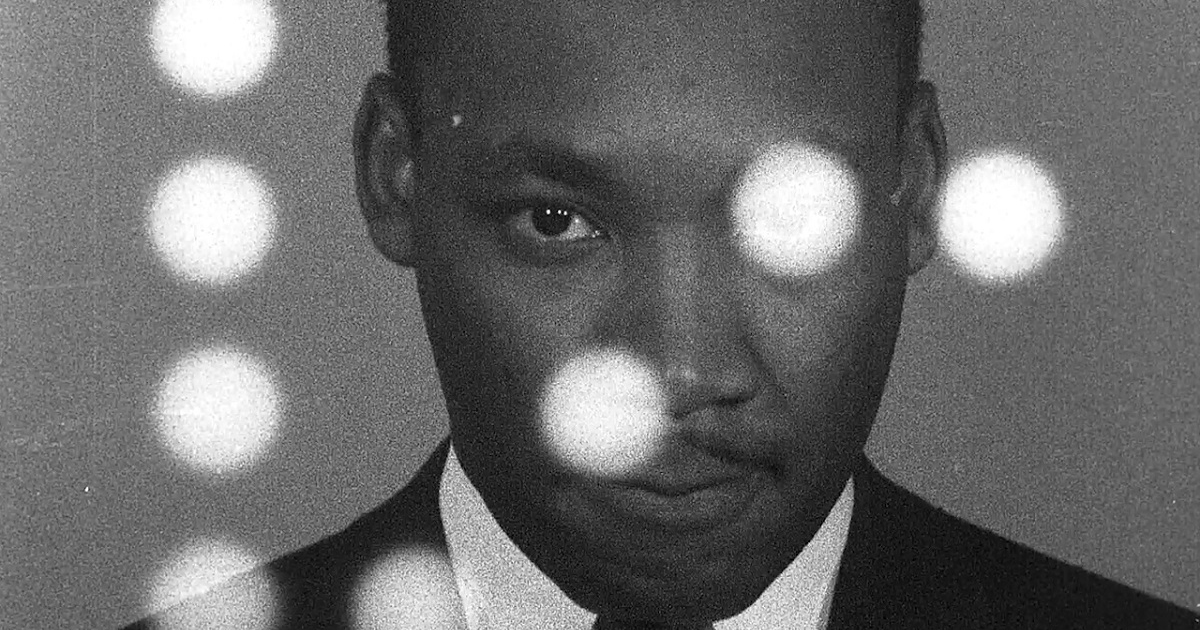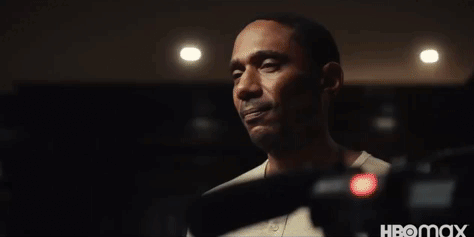
“The Staircase” subject Michael Peterson says that “allowing them to film everything was the wisest decision I made.” Colin Firth as Michael Peterson. Cr: Warner Media
The problem with any documentary subject is that, once you put them on camera, are you getting the real person or someone performing?
That’s a key question, which prompted filmmaker Antonio Campos to revisit, research, and adapt for HBO into a miniseries about crime novelist Michael Peterson, who was convicted then acquitted of murdering his wife.
“And the problem with Michael Peterson is, even in real life, there’s a performative quality to him,” says Campos. “So it’s a performance in a performance almost.”
You’d need to be familiar with the background to these events to fully appreciate the meta-narrative that Campos has delivered.
The Staircase is based on a 10-part documentary of the same name released in 2004 on the Sundance Channel before landing on Netflix in 2018 with three additional updated episodes. It follows the true story of Peterson and his wife Kathleen after she was found dead at the bottom of a staircase in their home, and the 16-year judicial battle that followed.
The show stars Colin Firth and Toni Collette rounded out by Michael Stuhlbarg, Sophie Turner, Patrick Schwarzenegger, Parker Posey and Juliette Binoche.
In many ways the original The Staircase pioneered what we know as the true-crime genre. It forensically examined a case building suspense and probing the evidence throughout multiple episodes.
NOT WHODUNNIT, BUT HOW-DUNNIT — DIGGING INTO DOCUMENTARIES:
Documentary filmmakers are unleashing cutting-edge technologies such as artificial intelligence and virtual reality to bring their projects to life. Gain insights into the making of these groundbreaking projects with these articles extracted from the NAB Amplify archives:
- Crossing the Line: How the “Roadrunner” Documentary Created an Ethics Firestorm
- I’ll Be Your Mirror: Reflection and Refraction in “The Velvet Underground”
- “Navalny:” When Your Documentary Ends Up As a Spy Thriller
- Restored and Reborn: “Summer of Soul (…Or, When the Revolution Could Not Be Televised)”
- It WAS a Long and Winding Road: Producing Peter Jackson’s Epic Documentary “The Beatles: Get Back”
What intrigued Campos was not just whether Peterson had done it (he took an Alford Plea of voluntary manslaughter to settle the case — meaning sufficient evidence exists to convict him of the offence, but the defendant still asserts their innocence) but to what extent the documentary series itself had shaped the narrative of actual events.
That’s why the documentarians — French filmmakers Jean-Xavier de Lestrade and Denis Poncet — feature as prominent characters in this new dramatic restaging. De Lestrade and Poncet had spent two years “embedded” with Peterson as they built their doc.
“One of the things that intrigued me was that the documentarians had different opinions about what happened — that the producer and the director don’t agree,” Campos explained to Mike DeAngelo at The Playlist.
READ MORE: ‘The Staircase’: Antonio Campos On His Michael Peterson Obsession & Adding More Story Details [Bingeworthy Podcast] (The Playlist)
Working alongside Campos is co-showrunner and co-writer Maggie Cohn. She told Variety, “We really thought it was such an interesting way to have a Greek chorus. They’re the people that are seemingly not invested in an outcome, but then you slowly see them become very invested to varying degrees in Michael Peterson’s fate. That’s kind of the most direct comparison to what the viewer’s experience will be.”
Campos was so interested in the original series when it came out. He was present during courtroom scenes that were captured in later episodes of the docuseries, but was wary of getting too close to Peterson.
READ MORE: ‘The Staircase’ Writers on Michael Peterson’s Queerness and Expanding on the Infamous Owl Theory (Variety)
While the original filmmakers spent hundreds of hours with Michael, Campos and Cohn took the opposite approach — purposefully limiting the amount of time they spoke to him.
“I had avoided talking to him because I was worried that it would skew my perspective and affect the way that I was looking at him as a character,” Campos told Julie Miller at Vanity Fair.
In the article, Cohn admits that she “struggled with how to keep that separation and distance” between filmmaker and subject.
NOW STREAMING — BEHIND THE SCENES OF FAN-FAVORITE SERIES:
As the streaming wars rage on, consumers continue to be the clear winners with an abundance of series ripe for binging. See how your favorite episodics and limited series were brought to the screen with these hand-picked articles plucked from the NAB Amplify archives:
- “Severance:” Now, About Solving the Work/Life Balance…
- Entering “The Gilded Age”
- Class Is Definitely Not In Session: The Horror Delights of “All of Us Are Dead”
- “The Dropout” Is a Slow-Motion Car Crash (and We Can’t Look Away)
- The (Unavoidable) Universal Appeal of “Squid Game” Is By Design
“I mean, I was in a three-hour conversation and I was struggling with it. So imagine, over the course of two years, trying to keep that separation and that distance when you’re so intimately connected. And then to leave and go edit the documentary,” continues Cohn. “I got a very small taste of what that’s like to try to keep up that boundary… it’s very difficult, or it was for me.”
Campos himself counters, “that a good documentarian has to get close to a subject, to a certain degree, to get them to open up. That’s the challenge too, right? You have to try and maintain objectivity, but you also need to develop trust.”
READ MORE: The Staircase: Unraveling Michael Peterson’s Real-Life Relationship With the Docuseries Filmmakers (Vanity Fair)
The best true-crime docs are perhaps the ones where there is suspicion but no firm evidence. There is still no definitive resolution for how Kathleen died, meaning this new TV dramatization can only repeat the speculation of the prior series.
The very existence of the original documentary was even credited by Petersen as being one key to his acquittal since it showed him and fellow witnesses in a different light.
In his 2019 book, “Behind the Staircase,” Peterson expressed his gratitude to the documentary crew: “Allowing them to film everything was the wisest decision I made,” he wrote, “for during the trial, witnesses lied and committed perjury to convict me; it was all on film.”
This leads Esquire’s Laura Martin to wonder whether filmmakers should be more sensitive to the circumstances of the true-crime cases they dramatize and publicize.
The Dropout, the dramatization of the Elizabeth Holmes and the Theranos scandal has also arrived at an awkward moment for the real-life case. The trial of Holmes business partner Sunny Balwani was held up when two jurors were dismissed by the judge, as they had watched the Disney+ series, despite being asked not to engage in anything to do with the case beforehand.
“Do we need more distance and time before the TV true-crime industrial complex jumps into action?” Martin muses.
“For the innocent wrongly accused of crimes they didn’t commit, it’s arguably never too soon. But for those unresolved cases with no clear-cut perpetrator, sometimes turning the cameras on only serves to muddy the waters of already impossible cases to solve.”
READ MORE: ‘The Staircase’: How the TV True-Crime Industrial Complex Influenced the Michael Peterson Case (Esquire)
“The Staircase:” When True Crime Maybe Isn’t That Truthful
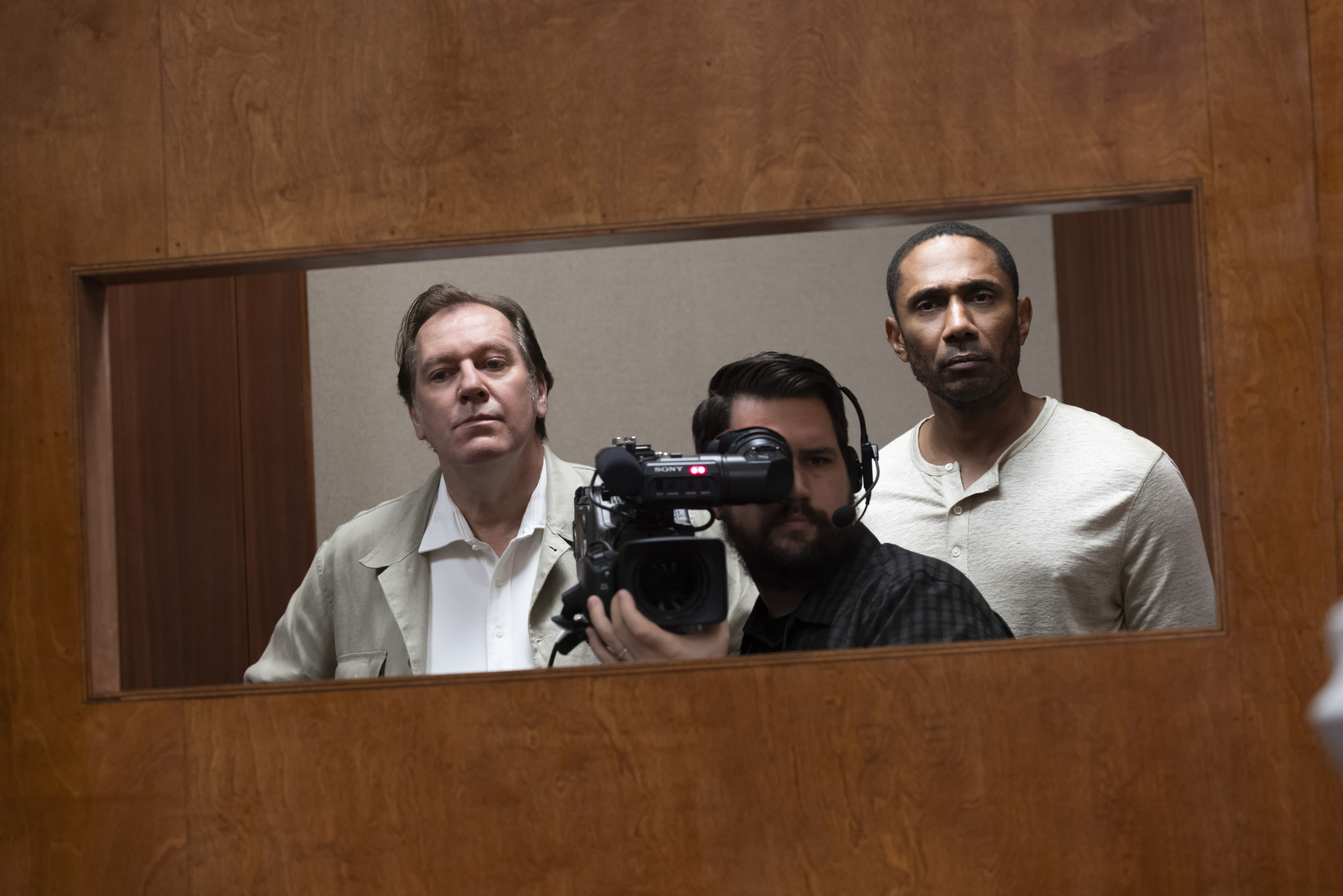
The fallout from the HBO Max dramatization of true crime story The Staircase has put the role of documentary makers in the spotlight.
Documentary filmmakers might purport to tell the truth but they must also acknowledge their inevitable role in shaping the story. No film is objective; the question is to what extent you are honest about that.
To recap: The Staircase revolves around the death of Kathleen Peterson in 2001 and the murder trial of her husband Michael in 2003, while a documentary team led by director Jean-Xavier de Lestrade and editor Sophie Brunet chronicle the case for a docuseries of the same name.
READ MORE: How “The Staircase” Is a True-Crime Drama in All Kinds of Ways (NAB Amplify)
The HBO adaptation moves the events into fiction (starring Colin Firth and Toni Collette) and includes the original documentary crew as characters in the drama — with the apparent consent of de Lestrade who sold his rights to HBO to make the show.
At issue is that the HBO series, by Antonio Campos, depicts de Lestrade and the original series’ editor Sophie Brunet, each acting in ethically questionable ways.
In Campos’ dramatization, de Lestrade is depicted as a docu helmer who asks for multiple takes and more emotion. Brunet, meanwhile, is portrayed as someone who edited the docuseries to benefit Peterson because she’s in love with him.
Naturally, the real de Lestrade and Brunet are not happy about that but Peterson himself is livid.
In a series of emails sent to Variety, Peterson said, “I have read about Jean de Lestrade’s sense of betrayal by Antonio Campos and HBO Max’s presentation of The Staircase, but what has been forgotten or overlooked or simply ignored is his betrayal of me and my family.
“We feel that Jean pimped us out — sold OUR story to Campos for money — what word other than pimped describes what he did?”
READ MORE: ‘The Staircase’: Michael Peterson Blasts ‘Egregious Fabrications’ in HBO Series, Claims Doc Director ‘Pimped Us Out’ (Variety)
De Lestrade produced and directed the docuseries. In addition to a fee, he received a co-executive producer credit on the adaptation.
“He released his archive to Campos who then created a fictional account of events, most of which trashed me (which I really don’t care about) and my children — which I really do care about,” Peterson says. “There are egregious fabrications and distortions of the truth in the HBO series, well beyond what may be considered ‘artistic’ license.”
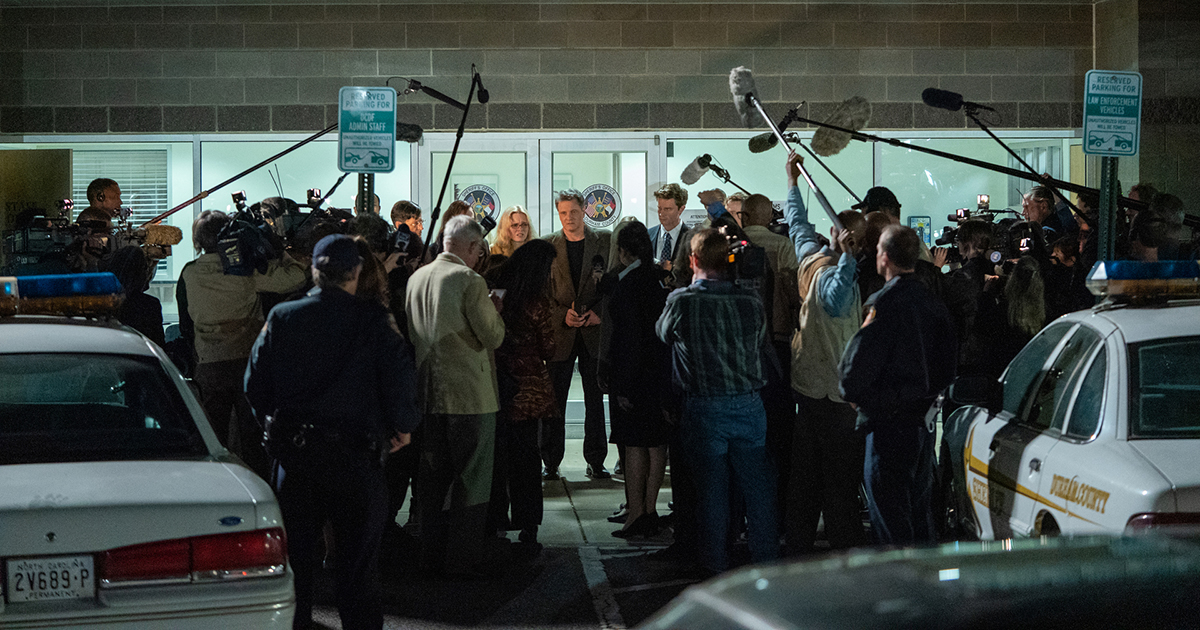
De Lestrade defends himself, unconvincingly, also to Variety: “Since I knew that Antonio had in mind to tell the story of Michael and the documentary, I thought that it would be better to cooperate, and be involved in the process then to stay totally outside as a stranger. In a way I thought I was protecting Michael and his family by being involved, but I was wrong.”
Much of this is a playground spat of “he said, she said,” but documentary filmmakers have been closely watching the debate too.
“This notion of documentary truth is a false one. It never really made sense, because you always manipulate the material. Always. The question is how far do you go?”
— Sam Pollard
For Dawn Porter, director of John Lewis: Good Trouble, the risks of such adaptations are clear.
“The risk of allowing someone else to fictionalize your story is that you can’t reclaim that narrative even if it’s so clear that the fiction is false,” Porter told Variety.
“So while it’s probably flattering to have somebody say, ‘I want to fictionalize your film,’ the key word is fiction.”
Ultimately the issue is unfortunate for the entire documentary community.
“Part of the popularity of documentaries is that it’s the truth,” Porter continues. “So, anything that calls into question that it’s true, or as true as you can make it because there is no absolute truth, is a problem.”
“The risk of allowing someone else to fictionalize your story is that you can’t reclaim that narrative even if it’s so clear that the fiction is false.”
— Dawn Porter
Sam Pollard, also a documentary director and editor (MLK/FBI), feels that audiences should know that docs are already coming from a filmmaker’s point of view.
“This notion of documentary truth is a false one,” Pollard told Variety. “It never really made sense, because you always manipulate the material. Always. The question is how far do you go?”
Producer-director Marc Smerling (The Jinx) is adamant that while he would never ask a subject to be more emotional and do another take, as depicted in The Staircase, but believes that Campos simply did his job.
“He seems to be mining this idea that storytelling in itself crosses different truths and realities, and it’s really hard at some point to understand what the truth and what the fiction is,” says Smerling. “He had a story that he wanted to tell, and he’s trying to tell it in a very clear way to an audience. He’s amplifying certain parts of the story and he’s compressing time. We all do that.”
READ MORE: How ‘The Staircase’ Is Stirring Up Debate About the Ethics of Fictionalizing Documentaries (Variety)
ALSO ON NAB AMPLIFY:
Campos gave his reasons for including the documentary crew as players in his dramatization to The Wrap. “What got me really excited when I met them was… it felt like the filmmakers were a Greek chorus for us, (verbalizing) those debates about Michael Peterson and the evidence that we were all having in our homes or in our heads.”
Co-showrunner and executive producer Maggie Cohn noted that in episode 4 of the HBO show, they depicted the documentary team constructing the doc they would go on to make about the defense and the prosecution. “They’re constructing a story about two stories that are being told, and we’re making a story about all of those stories,” Cohn said. “We are also asking the viewer to be as critical as those documentarians are about the story that we are giving you.”


